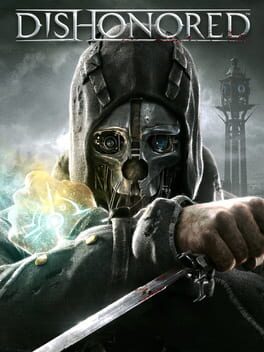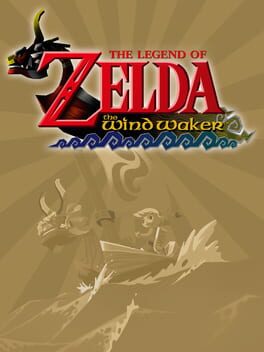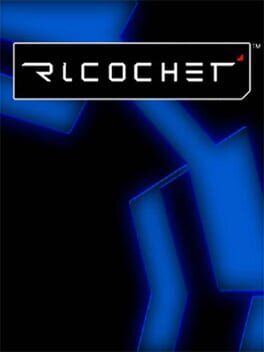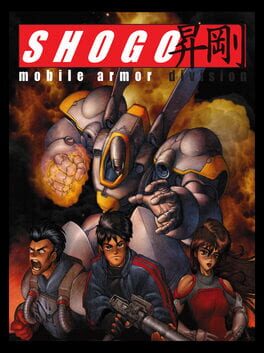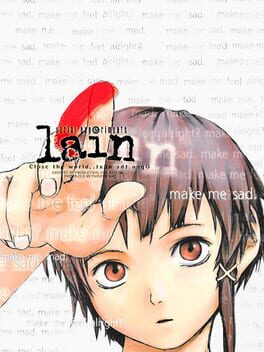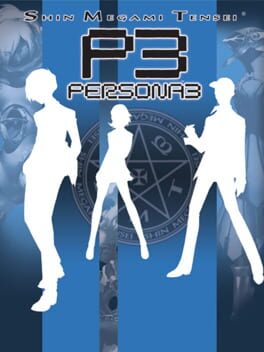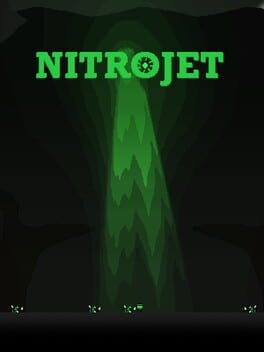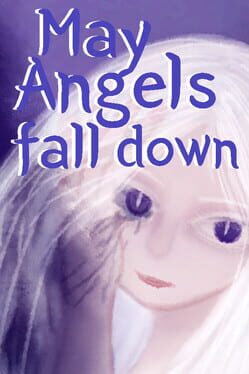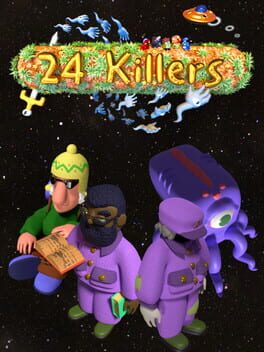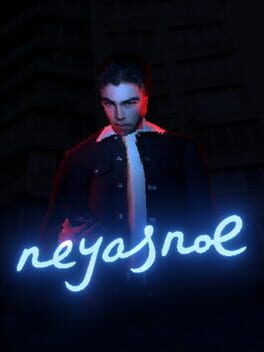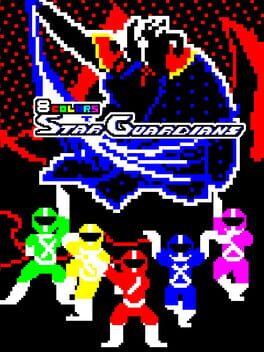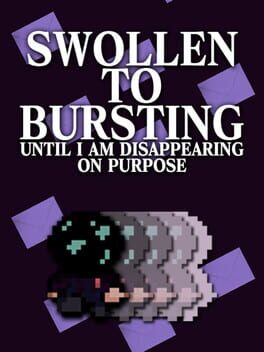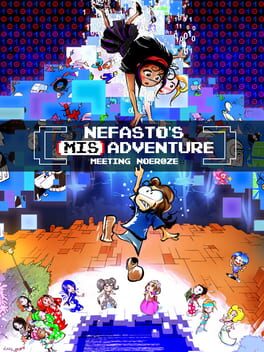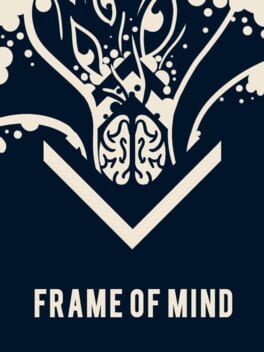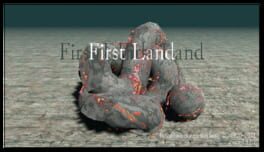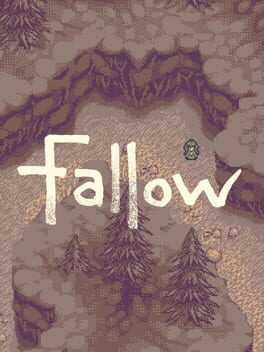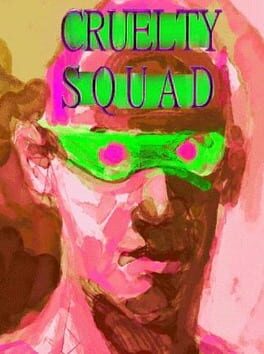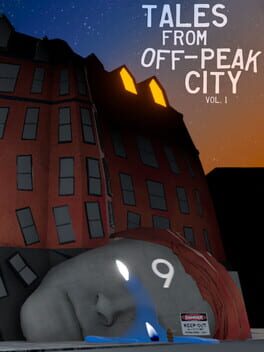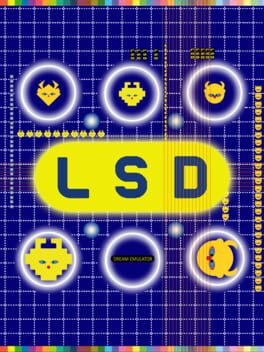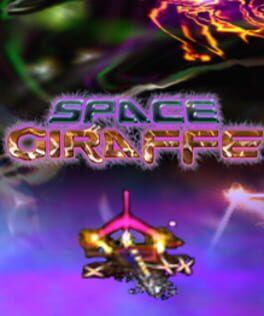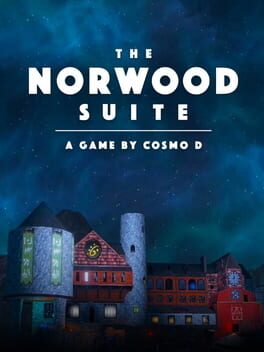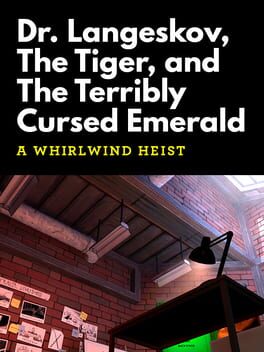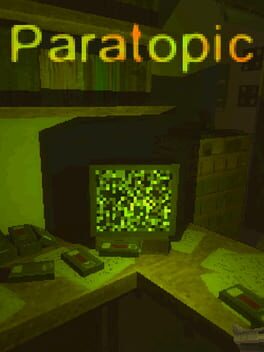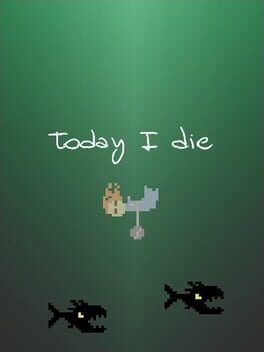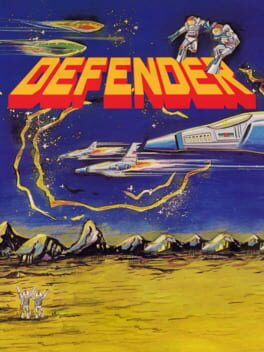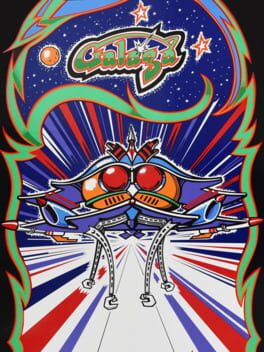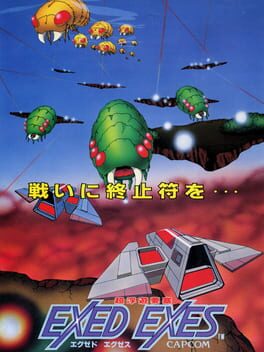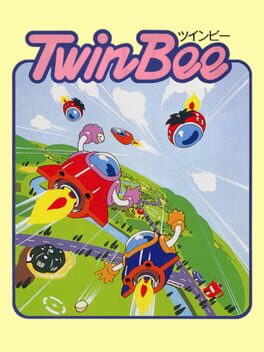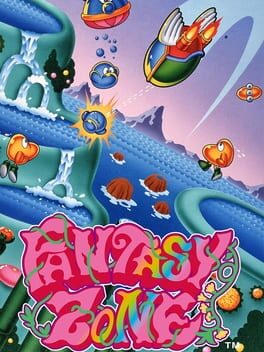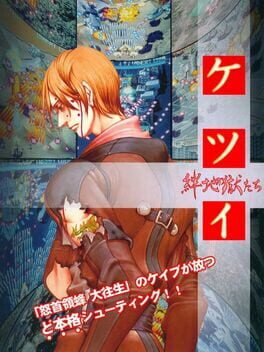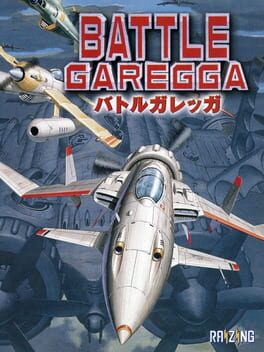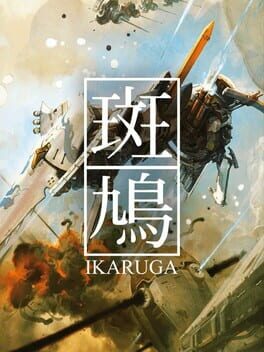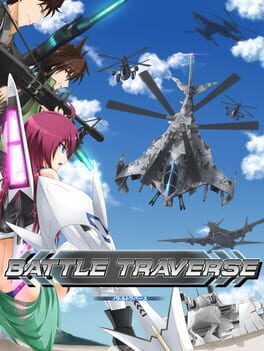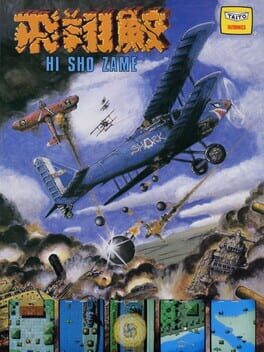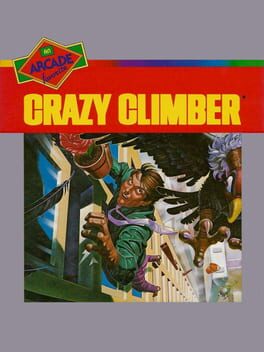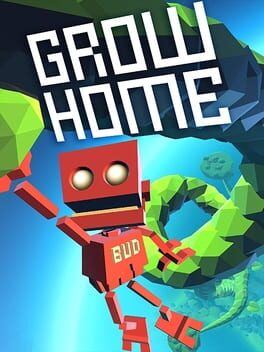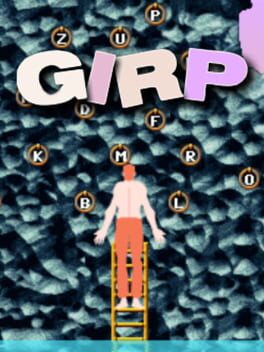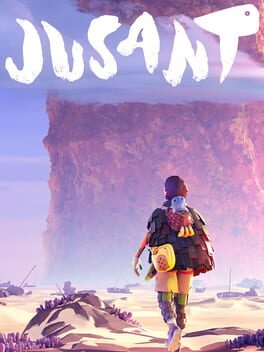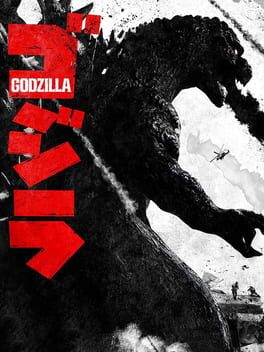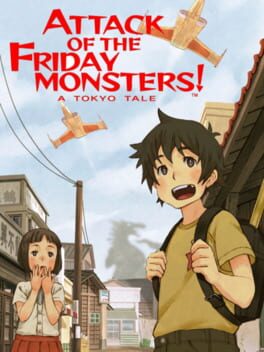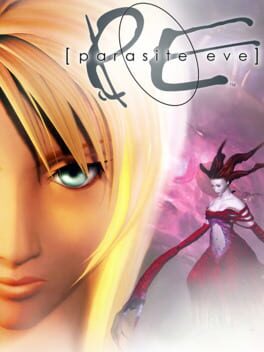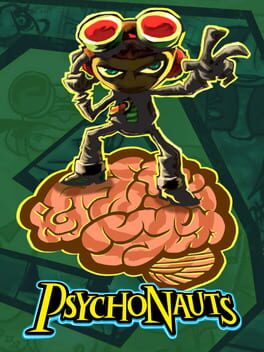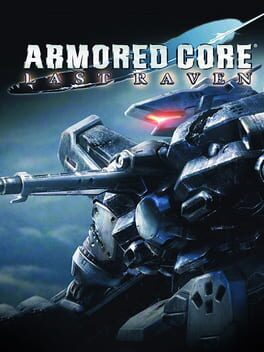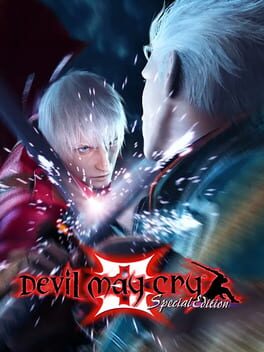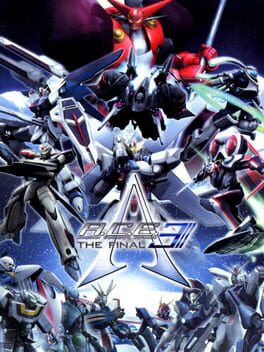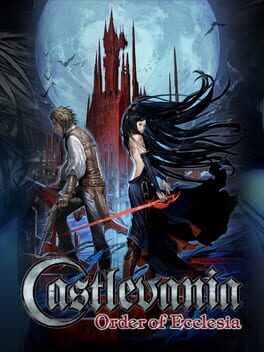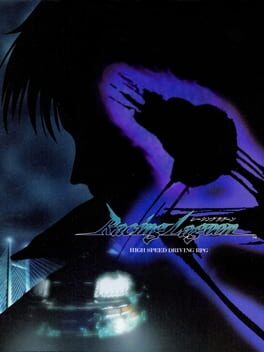platesniffer
46 reviews liked by platesniffer
Dishonored
2012
Dishonored’s chaos system fascinates me. On the surface it’s a basic kill-counter, where actually using the fun lethal magic is punished with increased guard counts and a pessimistic ending, and this naturally rubbed a lot of people the wrong way. When given the ability to stop time, what people want to do is take down an entire squad all at once, queue up ten projectiles for when time resumes, move someone back down the stairs, and so on, not just sneaking past one particularly stubborn guard. When given the ability to summon a devouring swarm of rats, the idea isn’t to possess one and sneak it into a drain pipe, it’s to make an explosive and terrifying entrance. Dampening that enjoyment with negative consequences seems like an unambiguously bad move, but the narrative framing that surrounds it leads into an analytical hall of mirrors. These powers are granted by the Outsider, a manifestation of the indefinable void, and their reasons aren’t very clear. They state that it’s because our protagonist is interesting, and they’re curious of what will be done with these newfound abilities. Just as the Outsider grants Corvo powers and a burden of choice, so too does the designer give them to the player, which, to a degree, lets us correlate the ideals of the two. To craft these levels with smart patrol routes, entry points, optional objectives, and bonus dialog takes a ton of effort, so the hope was that players wouldn’t choose to miss that content. While they made it possible to do so, they don’t actually want players to walk in the front door, shoot everyone in sight, and finish the game thoughtlessly in two hours, so some level of punishment was implemented. Similarly, the hope of the Outsider is that Corvo isn’t going to be boring, he won’t just give in to his base lust for revenge, and will instead give some insight on the nature of humanity. Once the uninteresting aggression has been pared off, the choice is then between taking out the high-priority targets lethally or non-lethally, and this where the situation actually becomes nuanced. All of the non-lethal, low-chaos options for eliminating targets are arguably worse than death: being branded with a hot iron and cast into a plague-infested city, being worked to death in a mine, kidnapped by an obsessive stalker, or put up for the same kind of public execution Corvo was originally destined for. The optional dialog in each mission really hammers home just how horrible things will be for those who receive your mercy, with the same overseers who mention the heretic’s brand being the same ones who reveal its horrible implications, and the prophesying heart making it clear that the spared Lady Boyle will soon die in abject poverty thanks to your beneficence. I believe this is the dilemma that the Outsider, as a being outside mortality and time, wants to see. Corvo himself was almost executed outside the law, but now he has all the power in the world and nothing to lose. What perspective on life and death does that give a person? Would he see even the most brutal rat-swarm death as justice, and maybe even merciful compared to the torturous and prolonged alternative? How much is mere existence worth?
However, that perspective rests upon the ever-shaky foundation of determining the developer’s intent, and it’s questionable how much of this is simply overanalysis. After all, every one of those horrible non-lethal options contribute to the low-chaos ending, with its bright skies and optimism. What could have been a dilemma worthy of the Outsider’s interest, one with no right answers, ends up as a right-and-wrong binary choice. This might be another example of the full-lethality problem, where the developers wanted players to have a choice, but had to associate some options with punishment to force players into thinking. With this, we arrive at Dishonored’s infinite mirror, of asking why players are given a choice if one option is almost objectively inferior, which can be answered with the idea that this effect is deeply woven into the narrative, which can in turn be questioned when it means interesting dilemmas are made into binary choices with inferior options, and so on, to infinity.
To be honest, I don’t know what my takeaway about Dishonored’s chaos system and its story really is. On one hand, I love that I get to question these things, but on the other, I wonder if its choices being blandly sorted into high or low chaos was just a cynical move, an anticipation that players might not pick up on the worldbuilding details and say there was no point to it all. Giving the murderous players a dark and stormy final level was considered the best way to show that the world was reacting to their choices; non-lethality had to be rewarded with smiles and sunny days, the feeling of being patronized is inescapable. That sneaky bitterness of cynicism is about the only thing that keeps me from really adoring the game, since it does everything else so beautifully, the world is so unique and interesting, the levels intricate and the powers satisfying, it’s the exact sort of originality I love to see. I just wish I could be confident that the game thought as highly of me as I do of it.
However, that perspective rests upon the ever-shaky foundation of determining the developer’s intent, and it’s questionable how much of this is simply overanalysis. After all, every one of those horrible non-lethal options contribute to the low-chaos ending, with its bright skies and optimism. What could have been a dilemma worthy of the Outsider’s interest, one with no right answers, ends up as a right-and-wrong binary choice. This might be another example of the full-lethality problem, where the developers wanted players to have a choice, but had to associate some options with punishment to force players into thinking. With this, we arrive at Dishonored’s infinite mirror, of asking why players are given a choice if one option is almost objectively inferior, which can be answered with the idea that this effect is deeply woven into the narrative, which can in turn be questioned when it means interesting dilemmas are made into binary choices with inferior options, and so on, to infinity.
To be honest, I don’t know what my takeaway about Dishonored’s chaos system and its story really is. On one hand, I love that I get to question these things, but on the other, I wonder if its choices being blandly sorted into high or low chaos was just a cynical move, an anticipation that players might not pick up on the worldbuilding details and say there was no point to it all. Giving the murderous players a dark and stormy final level was considered the best way to show that the world was reacting to their choices; non-lethality had to be rewarded with smiles and sunny days, the feeling of being patronized is inescapable. That sneaky bitterness of cynicism is about the only thing that keeps me from really adoring the game, since it does everything else so beautifully, the world is so unique and interesting, the levels intricate and the powers satisfying, it’s the exact sort of originality I love to see. I just wish I could be confident that the game thought as highly of me as I do of it.
There is little left to say about this game which has not already been said (to the world at large and probably to you specifically) by childhood friends, curious parents, complete strangers, critics of the past and present, and so on. Many of its limitations were (I think) sufficiently recognized by the end of the N64's life cycle, as its own sequel and the rest of the gaming industry closed the gap made by its massive strides forward. Its camera is frustrating; it throws in annoying leaps of logic at critical junctures; its world and characters are simple archetypes light on detail or texture; its controls are stiff and inventory navigation is a pain. Certainly many other games of similar genres and ambitions from this era aged worse, but few of those are today grappling with a legacy of being considered masterpieces. Every flaw not only sticks out, but probably has amassed a hundred articles/forum threads/blog posts/youtube videos complaining about it.
And yet when you boot up a hero rides a horse across a night sky while melancholy synthesized piano, strings, and ocarina play. When you leap from a high cliff the force of your fall breaks a spiderweb barrier below. When you step out of a temple as a newly dubbed hero, you find the sky is dark and a volcano burns in the background and a bustling town has become a zombie-plagued ruin. When you confront a dragon, you bring the hammer down on its skull for trying to eat a city of charming rock people. Whether your memory opted to sand-blast away everything but these peaks or flattened the entire experience out is likely beyond your control, as I know it is beyond mine. But some things were built to last, and given how high I had my hackles up this time around I was delighted to find how many elements of this game could still feel impactful.
Ocarina of Time is a game defined by its Moments and hindered by its moment-to-moment. Stepping out into Hyrule Field is a joy; running across it in a straight line without facing enemies or interesting terrain is a pain. Phantom Ganon's entrance rules; the energy ball not tracking back to him when you hit it or inexplicably sailing past your swung sword sucks. Playing it in 2021, you frankly need muscle memory and ample patience to bear you through the drudgery with minimal resistance, but many of its initial charms remain. Dungeons are well constructed and varied. The atmosphere of each environment is expertly established and maintained. Though it does not fully explore its time change mechanic, its uses of it are balanced and impactful. Buried beneath the aforementioned complaints are dozens of game design elements handled capably for a first foray into three-dimensional open world spaces, now either unremarkably common or all the more frustrating for their small differences. The latter I'm willing to forgive at the end of the day, the former feel like they earn a good deal of respect (though not blind fawning). And given how bloated many open worlds have become, the relatively small and comprehensible world has in some way gained appeal; 50 gold skulltulas (enough to gain all the useful rewards, albeit only half of the total in the game) feels much more achievable now that Assassin's Creed exists than it did in the late 90s/early 2000s.
In George Weidman's video on Dolphin VR emulation, he describes the model of child Link from Ocarina of Time as looking "papercraft". For all its reputation and confidence in direction, that is how this game reads now for good and ill. For ill in that it is thin, has visible seams, and is easy to knock over. For good in that when you indulge its invitation, you imagine a fuller and richer vision. The wide openness can feel like reach exceeding grasp or a flash overtaking substance, but I remain fond of the simplicity and the room it leaves for projection. Drawn on the tree trunk of Link's house is a stick figure hero fighting a dragon: the lack of detail and negative space is for you to fill in. Plus, my favourite game of all time would not exist without it.
[Wrote this review based off my playing the Master Quest, check out my review of that for my thoughts on it specifically.]
And yet when you boot up a hero rides a horse across a night sky while melancholy synthesized piano, strings, and ocarina play. When you leap from a high cliff the force of your fall breaks a spiderweb barrier below. When you step out of a temple as a newly dubbed hero, you find the sky is dark and a volcano burns in the background and a bustling town has become a zombie-plagued ruin. When you confront a dragon, you bring the hammer down on its skull for trying to eat a city of charming rock people. Whether your memory opted to sand-blast away everything but these peaks or flattened the entire experience out is likely beyond your control, as I know it is beyond mine. But some things were built to last, and given how high I had my hackles up this time around I was delighted to find how many elements of this game could still feel impactful.
Ocarina of Time is a game defined by its Moments and hindered by its moment-to-moment. Stepping out into Hyrule Field is a joy; running across it in a straight line without facing enemies or interesting terrain is a pain. Phantom Ganon's entrance rules; the energy ball not tracking back to him when you hit it or inexplicably sailing past your swung sword sucks. Playing it in 2021, you frankly need muscle memory and ample patience to bear you through the drudgery with minimal resistance, but many of its initial charms remain. Dungeons are well constructed and varied. The atmosphere of each environment is expertly established and maintained. Though it does not fully explore its time change mechanic, its uses of it are balanced and impactful. Buried beneath the aforementioned complaints are dozens of game design elements handled capably for a first foray into three-dimensional open world spaces, now either unremarkably common or all the more frustrating for their small differences. The latter I'm willing to forgive at the end of the day, the former feel like they earn a good deal of respect (though not blind fawning). And given how bloated many open worlds have become, the relatively small and comprehensible world has in some way gained appeal; 50 gold skulltulas (enough to gain all the useful rewards, albeit only half of the total in the game) feels much more achievable now that Assassin's Creed exists than it did in the late 90s/early 2000s.
In George Weidman's video on Dolphin VR emulation, he describes the model of child Link from Ocarina of Time as looking "papercraft". For all its reputation and confidence in direction, that is how this game reads now for good and ill. For ill in that it is thin, has visible seams, and is easy to knock over. For good in that when you indulge its invitation, you imagine a fuller and richer vision. The wide openness can feel like reach exceeding grasp or a flash overtaking substance, but I remain fond of the simplicity and the room it leaves for projection. Drawn on the tree trunk of Link's house is a stick figure hero fighting a dragon: the lack of detail and negative space is for you to fill in. Plus, my favourite game of all time would not exist without it.
[Wrote this review based off my playing the Master Quest, check out my review of that for my thoughts on it specifically.]
The life cycle of a Zelda game shows a clear improvement in its popularity over the years, in that the original perceived flaws are viewed more positively by the naysayers. This is particularly the case with The Wind Waker, which suffered from widespread dissent over the cel-shading issue upon its release. Nevertheless, today, a large majority of the public agrees that it is one of the great strengths of the game. Indeed, almost twenty years after its release, the title is still sublime to behold, whereas the N64 episodes have largely aged and Twilight Princess is more burdened by the weight of time.
As part of the Zelda Marathon, revisiting this opus was a rather interesting exercise. Without being one of my favourite Zelda, The Wind Waker had charmed me by its poetic of regret, which allows a swing between melancholy and joy of the present time. It is in the figure of the king and in a well-known monologue that the paradox of regret is crystallised, halfway between the past and the future. How can we not think of Kierkegaard's philosophy? Like the philosopher who puts on a fictional mask to escape the gaze of others, the king takes the form of a boat so as not to be recognised. He says it himself: he had no interest in revealing his true nature before the second trip to Hyrule. "I am a Janus bifrons," writes Kierkegaard. "One of my faces laughs, the other weeps... I unite in my own way the tragic and the comic: I am witty, people laugh – and I weep."
In Kierkegaard's view, the actor cannot maintain this charade indefinitely, since he is caught up in time and the exaltation of the play ceases at some point. The performances cease, or at any rate are only intermittent. In the last arc of the play, once the identity of the king is revealed, the masquerade no longer works and the light-hearted comedy of the talking boat also disappears. A void sets in and a disinterest in going further. The king announces that "he has planted the seeds of the future", referring to Link and Tetra, whom he bequeaths to the surface world. Yet he decides to stay under the waves, refusing to make the future his world. Better to disappear than to live with the pain of this emptiness: "I've just come back from a party where I was the soul [...] and I'd like to shoot myself in the head."
This poetics of repentance flows through the play on many occasions. All the characters seem to be driven by a sense of duty that is beyond them. Medli and Makar, once Link plays them the melodies of the Wise Men, are awakened to their true nature and accept it without question. They are aware of a higher mission, of their destiny. Makar emphasises that he accompanies Link to 'relieve the regrets of his ancestors'. It is also on the account of destiny that Ganondorf bases his quest. When he reveals his motives to Link, he makes an uncertain sentence, as if his motives were not clear to himself: 「ワシは、この風が欲しかったのかもしれぬ。」("I guess I coveted that wind.") His final sentence mentions that the wind is blowing, without it being possible to determine the nature of this wind: is it that of renewal, destruction or death? It's hard to say, but it's remarkable that this statement shifts the focus. Ganondorf, from the moment the Triforce vow was stolen from him, was no longer in control. The final battle is a kind of rebellion against fate, symbolised by Link and Zelda, the bearers of the Triforce's mark.
It is notable that the narrative economy throughout the title follows a similar pattern. The active phases of the game often occupy the mind and form a nice contrast with the passive phases – whether they are the result of cinematic or more contemplative moments, controller in hand – which press on the melancholy of the world. The characters often look away and far away, as if drawn to something absent. When Medli realises that she is the Sage of the Earth Temple, she knows she must slip away before Komali notices. A poignant scene occurs, if Link returns to the platform: Komali is waiting for Medli with a flower and, if Link returns even later, Komali is still present, but the flower will have withered. There is a kind of magic in the inconstant and the ephemeral, which give only partial signs. This is probably why there is a certain magic in the navigation – which remains, for my taste, slightly too long – in these islands appearing and disappearing with the horizon.
Yet while this poetry obviously charms, it's hard to avoid some issues: the world lacks organicity, due to its very gridded map, and the pace suffers. This is compounded by the title forcing you to explore almost every island as part of the Triforce quest, while also forcing you to go back and forth to search for various treasures. Rubies have never been a problem in the franchise, but The Wind Waker decided to change that by requiring at least 3400 rubies for the Triforce quest alone. This results in a requirement to search for treasure. Not that it's an unpleasant activity, but its compulsory nature sometimes breaks the rhythm of the game, which was not the case with the side quests of the N64 opuses, even if one can argue that a similar problem is found in the waiting times between quests in Majora's Mask.
The choice to expand the range of attacks in combos is welcome, but often leads to indistinct melees, especially when the camera is no longer tracking Link, who is backed up against a wall. Some fights can be frustrating against Darknuts, as it is not possible to parry attacks that come from an enemy outside of the L-targetting. Link's short range creates situations where it is difficult to break armour, especially when there are more than two enemies. The emphasis on combat can be regrettable, although the desire to showcase the new physics system and engine is easily understood. Nevertheless, Orca's quarter of the heart is dreadfully long, without being really interesting. The Savage Labyrinth has the same issue with lengths, as the arena is always flat, with no real tactical possibilities – unlike the sword challenges in Breath of the Wild.
These lengths build up over the course of the game, through cinematics that are impossible to skip. The Wind's Requiem and the Ballad of Gales force a six-second cutscene every time a teleportation or wind change is required, which is particularly common. The HD version counters this problem with the addition of the fast sail, and to Aonuma's credit, he already wanted to include it in the base version, but the GameCube's hardware couldn't handle it with the loading times. Some may argue that the slower navigation is part of the poetry of The Wind Waker, but a balance must be struck with accessibility and fluidity of gameplay.
My friend mentioned in our Oracles podcast that The Wind Waker was driven by a poetics of imperfection. I think that is indeed the case. It's a game full of little flaws, like a ship's hull taking on water little by little. It doesn't make it impossible to navigate, or even fundamentally unpleasant, but there is a time when the ship will sink. It is perhaps because the gameplay phases are sometimes rough, sometimes frustrating, that a certain elation emerges from the cinematics, from the journey.
Did I enjoy The Wind Waker as much as I remember? Honestly, I couldn't say. I think I was both more touched by its technical flaws and its atmospheric qualities. If there's one thing I can say for sure, it's that I'm glad I was able to revisit this game.
As part of the Zelda Marathon, revisiting this opus was a rather interesting exercise. Without being one of my favourite Zelda, The Wind Waker had charmed me by its poetic of regret, which allows a swing between melancholy and joy of the present time. It is in the figure of the king and in a well-known monologue that the paradox of regret is crystallised, halfway between the past and the future. How can we not think of Kierkegaard's philosophy? Like the philosopher who puts on a fictional mask to escape the gaze of others, the king takes the form of a boat so as not to be recognised. He says it himself: he had no interest in revealing his true nature before the second trip to Hyrule. "I am a Janus bifrons," writes Kierkegaard. "One of my faces laughs, the other weeps... I unite in my own way the tragic and the comic: I am witty, people laugh – and I weep."
In Kierkegaard's view, the actor cannot maintain this charade indefinitely, since he is caught up in time and the exaltation of the play ceases at some point. The performances cease, or at any rate are only intermittent. In the last arc of the play, once the identity of the king is revealed, the masquerade no longer works and the light-hearted comedy of the talking boat also disappears. A void sets in and a disinterest in going further. The king announces that "he has planted the seeds of the future", referring to Link and Tetra, whom he bequeaths to the surface world. Yet he decides to stay under the waves, refusing to make the future his world. Better to disappear than to live with the pain of this emptiness: "I've just come back from a party where I was the soul [...] and I'd like to shoot myself in the head."
This poetics of repentance flows through the play on many occasions. All the characters seem to be driven by a sense of duty that is beyond them. Medli and Makar, once Link plays them the melodies of the Wise Men, are awakened to their true nature and accept it without question. They are aware of a higher mission, of their destiny. Makar emphasises that he accompanies Link to 'relieve the regrets of his ancestors'. It is also on the account of destiny that Ganondorf bases his quest. When he reveals his motives to Link, he makes an uncertain sentence, as if his motives were not clear to himself: 「ワシは、この風が欲しかったのかもしれぬ。」("I guess I coveted that wind.") His final sentence mentions that the wind is blowing, without it being possible to determine the nature of this wind: is it that of renewal, destruction or death? It's hard to say, but it's remarkable that this statement shifts the focus. Ganondorf, from the moment the Triforce vow was stolen from him, was no longer in control. The final battle is a kind of rebellion against fate, symbolised by Link and Zelda, the bearers of the Triforce's mark.
It is notable that the narrative economy throughout the title follows a similar pattern. The active phases of the game often occupy the mind and form a nice contrast with the passive phases – whether they are the result of cinematic or more contemplative moments, controller in hand – which press on the melancholy of the world. The characters often look away and far away, as if drawn to something absent. When Medli realises that she is the Sage of the Earth Temple, she knows she must slip away before Komali notices. A poignant scene occurs, if Link returns to the platform: Komali is waiting for Medli with a flower and, if Link returns even later, Komali is still present, but the flower will have withered. There is a kind of magic in the inconstant and the ephemeral, which give only partial signs. This is probably why there is a certain magic in the navigation – which remains, for my taste, slightly too long – in these islands appearing and disappearing with the horizon.
Yet while this poetry obviously charms, it's hard to avoid some issues: the world lacks organicity, due to its very gridded map, and the pace suffers. This is compounded by the title forcing you to explore almost every island as part of the Triforce quest, while also forcing you to go back and forth to search for various treasures. Rubies have never been a problem in the franchise, but The Wind Waker decided to change that by requiring at least 3400 rubies for the Triforce quest alone. This results in a requirement to search for treasure. Not that it's an unpleasant activity, but its compulsory nature sometimes breaks the rhythm of the game, which was not the case with the side quests of the N64 opuses, even if one can argue that a similar problem is found in the waiting times between quests in Majora's Mask.
The choice to expand the range of attacks in combos is welcome, but often leads to indistinct melees, especially when the camera is no longer tracking Link, who is backed up against a wall. Some fights can be frustrating against Darknuts, as it is not possible to parry attacks that come from an enemy outside of the L-targetting. Link's short range creates situations where it is difficult to break armour, especially when there are more than two enemies. The emphasis on combat can be regrettable, although the desire to showcase the new physics system and engine is easily understood. Nevertheless, Orca's quarter of the heart is dreadfully long, without being really interesting. The Savage Labyrinth has the same issue with lengths, as the arena is always flat, with no real tactical possibilities – unlike the sword challenges in Breath of the Wild.
These lengths build up over the course of the game, through cinematics that are impossible to skip. The Wind's Requiem and the Ballad of Gales force a six-second cutscene every time a teleportation or wind change is required, which is particularly common. The HD version counters this problem with the addition of the fast sail, and to Aonuma's credit, he already wanted to include it in the base version, but the GameCube's hardware couldn't handle it with the loading times. Some may argue that the slower navigation is part of the poetry of The Wind Waker, but a balance must be struck with accessibility and fluidity of gameplay.
My friend mentioned in our Oracles podcast that The Wind Waker was driven by a poetics of imperfection. I think that is indeed the case. It's a game full of little flaws, like a ship's hull taking on water little by little. It doesn't make it impossible to navigate, or even fundamentally unpleasant, but there is a time when the ship will sink. It is perhaps because the gameplay phases are sometimes rough, sometimes frustrating, that a certain elation emerges from the cinematics, from the journey.
Did I enjoy The Wind Waker as much as I remember? Honestly, I couldn't say. I think I was both more touched by its technical flaws and its atmospheric qualities. If there's one thing I can say for sure, it's that I'm glad I was able to revisit this game.
Ricochet
2000
'Pendulum Hold Your Colour Full Album Free Download [MP3 HQ]' changed their name to 'Windows XP Serial Number 034634-262024-171505-828316'
'Windows XP Serial Number 034634-262024-171505-828316' says: WwwwWwwwwasdaasdsadwwasdwwwassd
'Windows XP Serial Number 034634-262024-171505-828316' triple-rebound beheaded player: 'HD Ricochet Motorola Wallpapers'
'HD Ricochet Motorola Wallpapers' left the server.
'John Ricochet' says: hhow do i i turn off auto Aim>??
'Windows XP Serial Number 034634-262024-171505-828316' left the server - Timed out due to a client-side error
'John Ricochet' wins! 1st place of 1 players. 0 total Points
'John Ricochet' says: how d
'Windows XP Serial Number 034634-262024-171505-828316' says: WwwwWwwwwasdaasdsadwwasdwwwassd
'Windows XP Serial Number 034634-262024-171505-828316' triple-rebound beheaded player: 'HD Ricochet Motorola Wallpapers'
'HD Ricochet Motorola Wallpapers' left the server.
'John Ricochet' says: hhow do i i turn off auto Aim>??
'Windows XP Serial Number 034634-262024-171505-828316' left the server - Timed out due to a client-side error
'John Ricochet' wins! 1st place of 1 players. 0 total Points
'John Ricochet' says: how d
Disco Elysium
2019
This review contains spoilers
ME - First, Notes. No, It's Declaration of Defeat.
LOGIC [Medium: Success] - What were you defeated against?
ELECTROCHEMISTRY [Impossible: Failure] - Disco.
INLAND EMPIRE [Impossible: Failure] - Myself.
ME - Below, I have written a very long loooooong and TOOOOOOG text.
HAND/EYE COORDINATION [Nedium: Success] - TOG, British TOG2 heavy tank. Famous for being a long, big and slow tank.
REACTION SPEED [Medium: Failure] - However, there is no response that good writing has been achieved.
PAIN THRESHOLD [Formidable: Failure] - It may be that the senses have been numbed by over-rewriting the text.
LOGIC [Medium: Success] - I myself prefer short sentences that get to the point.
ENDURANCE [Formidable: Failure] - I get really tired of writing long sentence...
ENCYCLOPEDIA [Impossible: Failure] - However, as far as searching the internet is concerned, no articles can be found that involve the Disco Elysium/DE' matters I am about to describe. So a lengthy explanation became necessary.
ME - Logic is essential when analysing and critiquing anything, not just games. Rather, analysis and critique rely on logic. I felt lost in a logic maze as I thought and wrote about DE. There are three causes.
VOLITION [Medium: Failure] - 1st, my motivation. I personally respect when I read good critiques and analyses. But I can't help it if I myself am not interested in logical writing work itself.
LOGIC [Medium: Failure] - 2nd, my logical ability. I'm not proud of it, but I'm not very smart.
INLAND EMPIRE [Impossible: Failure] - And the 3rd problem. This was very biggest. DE is a game created by a will... or something that transcends logic and intelligence. In other words, it is a mistake to try to put such games in the frame of logic again.
ME - And, due to the large amount of text, there are likely to be many typographical errors. There may be parts to be fixed over the next few days.
SAVOIR FAIRE [Formidable: Success] - Final and compromised edit made on 25/08/2022. Note, the passive skills checks and Thought cabinet in bold are from within the Disco Elysium text. Those that are not are fakes written by me.
# Conclusion
ME - The gameplay and mechanism of DE is not touched here. I leave it to the critics to explain and analyse how DE is a great RPG. Below, my six speculations.
1. Fifth(zero?) column/Ravachole/Anarchism
Robert Kurvitz/RK and ZA/UM are anarchists. If there is a real person as a model for Harry, it is Bakunin, not Marx. Most references to political ideology in DE are from the perspective of anarchists and not communists.
2. Passion/Destruction/Creation
Passion for destructive creation. Or passionate destructive creation.
3. Chance/Coincidence
Coincidence as violence exercised through die rolls. Coincidences that destroy all outcomes, worlds and events.
4. Reason/Intellect/Rationality
Zaum. Language beyond reason and intellect and rationality. This experimental language and concept is used to destroy and re-create word sense, sentence meaning, context and narrative itself in creative writing, including existing theories of writing.
5. Again, a summary of speculation
In light of the above 4 points, the DE’s aim is "destruction against any object or idea".
6. On meaning and value
That the world of this game is meaningless. And that our world may be meaningless too. But, is meaninglessness worthless?
ME - I have written many more, but the main points are these 6 points. Although it is not a text that can be called an analysis, there are two people who were the main references. And I believe that these 2 persons may be the CORE of DE. See link for overview.
Mikhail Alexandrovich Bakunin
Daniil Ivanovich Kharms
ENCYCLOPEDIA [Medium: Success] - In addition, I also consulted material on these three individuals.
Carl von Clausewitz
Henri-Louis Bergson
Charles de Gaulle
SAVOIR FAIRE [Easy: Success] - The following text is redundant and meaningless and can be skipped.
# 0. My DE playthrough
ME - I'm not a particular fan of novel games.
DRAMA [Trivial: Success] - 嘘だッ!/LIES!
REACTION SPEED [Legendary: Failure] - Ugh, I ain't lying.
COMPOSURE [Heroic: Failure] - T-then give me evidence that it's lies. Evidence/ショーコ.
ME - ...I think I've read more than the average amount of adventure, sound novels and visual novels, including some I haven't recorded in my logs. I can say that DE was the most difficult of them all. There are many reasons for this, including the fact that I'm not very familiar with foreign games, English is not my first language and the Japanese version of DE has not yet been release. However, DE felt there was something more to it. I want to know what that something is. As a result, it's a long. I don't think it's an enjoyable read because of the redundant explanations.
EMPATHY [Medium: Success] - But I had worked so hard to write it and I wanted someone to read it.
I forget what it was that led me to know about DE. Because it's the hottest game abroad? Because I read an article about DE on a Japanese game introduction website? I don't know anymore now. I think it was a foolish calculation to buy it even though I don't understand English very well. The stupid calculation of studying a language while playing a game.
VISUAL CALCULUS [Godly: Failure] - That foolish calculation, of course, backfires.
ME - But I am a würm, which is becoming extinct in Japan these days. Böök würm. Of course, I get angry at sloppy translations, esoteric technical books, or uninteresting bad books, and I throw the book itself. That's the weak of e-books. Throwing my device every time I come across a bad book would bankrupt me. kindle devices are expensive. Reading can make me angry and depressed. Yet I don't dislike reading itself. And foolish calculations that it might be a good way to learn a language. Unfounded confidence in reading. My million-word journey has begun.
VOLITION [Medium: Success] - Game start. Archetype is SENSITIVE.
ME - At the beginning, the protagonist's incoherent thinking is baffling. I have no idea what it means. I managed to get ready and left the room. A woman smoking a cigarette was in front of me as soon as I left the room. I associated her with Fiana from Armoured Trooper Votoms because of her facial modelling.
ENCYCLOPEDIA [Medium: Success] - Armored Trooper Votoms. Japanese robot animation. Aired in 1983. Hard-core content that does not look like anime. Next episode preview is poetic.
RHETORIC [Medium: Success] - The predator, the prey, and the scavenger of the scraps. A violent city where one cannot survive without fangs. A city armed with every manner of vice: Uoodo. Melkia's Sodom, born of the Hundred Years War. With the scent of cordite still clinging to him... Chirico finds himself surrounded dangerous people. Next time, 'Encounters’. Chirico drinks, and the coffee of Uoodo is bitter indeed.
ME - I sense from her voice that she is a ヤベー/dangerous woman.
RHETORIC [Legendary: Failure] - ヤベー, not Yekokataa. What is Yekokataa?
HALF LIGHT [Medium: Success] The original version of KLAASJE's voice gave the impression of a dangerous woman.
ME - At the bottom of the stairs is a no flower old Asian man.
ENCYCLOPEDIA [Medium: Success] - no flower/華がない. The Japanese expression 'hana ga nai/華がない' refers to people who are not flamboyant in appearance.
EMPATHY [Formidable: Success] - The modern way of putting it is... The character KIM gives me mixed feelings. I plan to write about him elsewhere.
ME - I leave the café and head for the victim's body. There were gremlin there throwing stones at the corpse. The most disappointing thing about the final cut version was that this gremlin's voice was changed. I don't remember where it was written, but there was a comment that the original version of Cuno was a truant and the FCver Cuno is a proper school going child, which made me laugh out loud.
HALF LIGHT [Easy: Success] - FINAL CUT? NO! FINAL COMPROMISE VOICE EDITION!!
ME - For now, I ignored this noisy gremlin. Click on hanging corpse; Harry vomits as ENDURANCE check fails. At this point, my own MORALE values were running out of steam. With tears in my eyes, I successfully complete the ENDURANCE and HAND/EYE COODINATION checks, lower the body to the ground and begin the autopsy. And when the option to touch the pubic area of the body came up, my eyes staring at the monitor became vacant. The eyes of a dead fish.
DAMAGED MORALE -2
VOLITION [Impossible: Failure] - I closed the game window after losing my MORALE value due to DE' difficult English writing and dark jokes beyond comprehension.
ME - One day, a few days later, I read some DE developer interviews in the hope that they would help me play. One of the most striking statements came from the main writer.
ROBERT KURVITZ, DISCO OF GOD - "The main thing to understand about text is that people don't understand text."
ME - Looking back, I feel that these words were the catalyst for my positive attitude towards DE. I realised that I was being weirdly defensive because it was English in a game, and then I decided to change my attitude towards this game a little. Read with the senses, not with the mind. I responded to dark jokes that go beyond my common sense by consciously numbing my senses. Sense of seeing rather than reading the text.
PHYSICAL INSTRUMENT [Easy: Success] - Don’t think, feel.
ME - Whether in English or Japanese, what you see is the same text, whether on paper or on a monitor. The same thing I've done with all the books I've read and all the games I've played, I've applied to DE. I dared to read it diagonally, spit on it, shake the monitor, hitting pc, all sorts of things. I don't think I've ever muttered the F-word as much as I did in this game.
DRAMA [Heroic: Success] - THE TIME HATH COME.
HALF LIGHT [Legendary: Success] - TIME OF COMPROMISE.
VOLITION [Easy: Success] - INCREMENTAL READING.
ME - I then proceeded to investigate, in a style of compromise and incremental. After a long period of successes, failures and strays, he/I became a communist superstar cop and thus returned.
VOLITION [Easy: Success] - Started the 2nd round with a custom build.
ME - I completed the options and events I didn't read in the first round, failed the AUTHORITY check (93% chance!). and investigated with a gremlin who became KIM's replacement, obtained the flower and saw a surprising side of DESARTER. The result was an apocalyptic fascist cop. I read most of the text in 2 rounds. But I thought I didn't fully understand what the game was trying to say. It was around that time that I discovered this website, Backloggd. Around October 2021. I read through the many reviews in the hope that it would give me some insight.
REACTION SPEED [Heroic: Success] - This review in particular opened my eyes. Really excellent.
SUGGESTION [Godly: Success] - I don't think my writing is any better than Minaplo-san', so please jump to the link above immediately.
ME - Once I found Minaplo-san' review, I could say that I had almost achieved what I came to this site for. However, searches for 'anarchism' and 'Kharms', which I have been think and speculating about disco, did not turn up the articles I had hoped for.
INTERFACING [Godly: Failure] - Maybe my google searching is not the right one.
CONCEPTUALIZATION [Fomidable: Failure] - "Do I have to write my own, personalised DE' answer myself?"
ME - Despite that thought, DE is not a game that can be easily answered. ...Japan is on the Western side of the political spectrum, but is a non-European-American cultural area.
LOGIC [Heroic: Failure] - I'll not mention anything prior to 1945.
ME - For those living on such an island, the world of DE and Estonia are different worlds, and the Estonians who created it are otherworldly. Still, I didn't give up and wrote down little by little what came to my mind and what I had noticed. At this time, the total KB of DE-related text files had reached 500KB. It will not be long before it reaches 1MB. And it was only at the end of 2021 that I was able to output the whole skeleton -- outline, editing what I had written so far in Markdown format. This long text is the result of adding redundant sentences to the outline. The deadline is 30 May, the birthday of a certain revolutionary. It was then extended by another month and was finally completed today, 1 July, the anniversary of his death. Here is an itemised list of what I came up with.
## 0+ What I thought after 1 round of DE
-What is DE a game? Isn't really an RPG? What is an RPG in the first place?
-Considering RPGs with Uncle Bandage in Ultima Online. ©HIRANO KOHTA
-What is its narrative classification? Is it a mystery?
-About 24 SKILL. DE and Billy Milligan are not related in any way, are they? I'm a bit angry that some Japanese DE introduction articles mislead people into thinking Harry is a 24 multiple personality.
HALF LIGHT [Trivial: Success] - Japanese games journalism, especially Famitsu and Dengeki, is rubbish!
-24 discours instead of 24 skills? Pun?
## 0++ What I thought after 2 rounds of DE
-About the times and Don Quijote
-To make readers laugh out loud at the eccentricities of a crazy middle-aged man. That the roles and positions of Kim and Sancho are similar. DE is Don Quijote?
CERVANTES, LA LEYENDA ESPAÑOLA - "The benefits that Don Quixote will bring to the world when he comes to his senses are nothing compared to the pleasure his madness will give us." Don Quixote, Part 2
-The sorrows of the age itself. The sadness of the present day, which continues from the 20th century.
CHARLES DE GAULLE, L'HOMME DU 18 JUIN - "Uncertainty is the hallmark of the modern era. Conventional practices, future prospects, or the torrential denial of the doctrine of regulation. Moreover, never before have so many trials, losses and disillusionments, and also the various glimmers, shocks and threats of so many civilisations, so shaken the established order. The army, which is responsible for transforming the world, first suffers from this fact and weeps for its lost passion." - Le Fil de l'Epee
-I personally think Rene and de Gaulle are very similar. Ask a French person and they will say ‘Non'. The only thing that's the same is the way they died? They both died of heart attacks.
-And when de Gaulle died, when Rene died, they had someone to cry for them in their death. But when DESARTER dies, will anyone cry for him?
## 0+++ DE is really communist game?
VOLITION [Formidable: Success] - ...Writing from this point on was quite difficult.
ME - This section aims to observe the game of DE, with a focus on politics. The observation equipment is a Japanese-made old telescope. I'm unable and unwilling to examine the details of each political ideology and its forces.
CONCEPTUALIZATION [Formidable: Failure] - The additional quests in the final cut were interesting, but personally I think they are not necessary parts of the game.
ME - I'm not interested in political ideology. I threw Marx' Das Kapital away halfway through and don't remember it anymore, and I don't like communism. Nevertheless, I still find Marx's idea and thought useful and I read excerpts and summaries. And above all, I'm not European. Living in the Far East, I cannot act as a microscope. Only an Eastern European or European would be able to see DE in the high resolution of a microscope.
DRAMA [Imppossible: Failure] - Historically and --
EMPATHY [Imppossible: Failure] - Emotionally too.
ME - Before moving on to the main issue, I will briefly touch on the political forces in DE.
LOGIC [Medium: Success] - I'm not interested, but I need to preface this for what I'm about to explain...
ME - Firstly, communism. Based on Intellect. It is the most significant subject of DE and many people who have played DE consider it to be a communist game.
PERCEPTION(SIGHT) [Easy: Success] - Color is blue.
INLAND EMPIRE [Formidable: Success] - I only half agree with that impression, but I thought about the 'half I disagree with' in this long article.
ME - Secondly, moralism. Based on Psyche. DE and the biggest winners in the real world? Moralism has been criticised quite bitterly, although not very prominently.
SUGGESTION [Easy: Success] - e.g. Kingdom of concience’s solution.
PERCEPTION(SIGHT) - Color is purple.
ME - Thirdly, fascism. Based on Physique. Fascism is probably the most ridiculed thing in DE. At the same time feared? But I believe it is a reflection of RK and RK's home country, Igaunija/Estonia. The main reason for thinking this is due to the following ENCYCLOPEDIA.
ENCYCLOPEDIA [Godly: Success] - Igaunija -- a god-forsaken (and tiny) territory in Graad that has not once, but twice wasted its independence on microfascism. The less said about Igaunija the better. Matter of fact, let's stop saying things about it right now and continue what we were doing.
PERCEPTION(SIGHT) - Color is red.
ME - Fourth, liberalism. Based on Motorics. Surface winners in the DE world? The state dies, but capital does not.
RHETORIC [Legendary: Success] - "国破山河在 -- The country breaks, but mountains and rivers remain."
PERCEPTION(SIGHT) - Color is yellow.
ME - From here, many questions came to mind.
"Will communists honestly admit that communism has failed?"
"Are there communists who prefer disco?"
"I laughed a lot reading DE's writing and I've never laughed so much in any game I've ever played. But have any communist writers I know been so humorous?"
"Isn't it not always communists who can talk about communism?"
For example, religion. Some Buddhists and Muslims are familiar with Christianity. The reverse is also true.
The first example that came to my mind was a Protestant atheism researcher. He went from atheism to Marxist studies and became a diplomat in charge of the Soviet Union. Then he was arrested. Now he is a writer.
[Another example is a person who was more familiar with Buddhist teachings than the high priests of Buddhism. He is an artist.
CONCEPTUALIZATION [Godly: Success] - Art is an explosion!
ME - This has nothing to do with DE and communism, but there are probably many people on this site who are more familiar with the Japanese game than I am. Especially when it comes to Suda51' game, I have no chance.
ESPRIT DE CORPS [Heroic: Success] - I really enjoy reading the excellent analysis and reviews on this site and at the same time I appreciate
ME - When search 'communism and DE', we often saw accusations of being pro-communist in reviews and comments on DE. Each time, I thought half of those opinions and impressions were right, while the other half were wrong.
INLAND EMPIRE [Godly: Failure] - And I am probably half right and half wrong too. No, I may be all wrong.
ME - One day, I began to consider that DE was not written from a communist standpoint. They don't reflect, they don't admit failure. This is what I consider communist. Even assuming that RK was a former communist who had converted or abandoned his political beliefs, it was inconceivable to me that he would portray communism with jokes mixed in. ...Then I remembered that communism is not the only revolutionary force.
VISUAL CALCULUS [Godly: Success] - "So from which position do I assume DE was written?"
ME - Before moving on to the next item, I'll try to imitate DE here and do a red skills check.
HAND/EYE COORDINATION [Impossible: Failure] - Impossible to observe/snipe Europe from the Far East.
VOLITION [Challenging: Success] - But it should be worth a try.
1. [Inland Empire - Challenging 12] Is Robert Kurvitz really a communist? If he isn't a communist, what is he?
INLAND EMPIRE: 5
EVEN
??%
+1 Revachol? Reval? Ravachol?
+2 Pro-communism but at the same time critical.
+1 Harry's face isn’t resemble Marx(Mazov).
+1 Crypto-communist CINDY THE SKULL.
+1 DESERTER - "You're an inert lumpen with a gun."
+1 "Thank you to Marx and Engels for providing us political education."
+1 ENDURANCE [Godly: failure] - Uh oh. Organisation hasn't exactly been your strong suit, historically speaking...
-5 Not a matter of speculation. (No official data available).
-3 Political ideology isn't my interest.
This is a Red Check.
It can not be retried.
INTERFACING [Easy: Success] - CLICK AND SCROLL!
CHECK SUCCESS/FAILURE
INLAND EMPIRE [Challenging:Success/Failure] - ANARCHISM.
PERCEPTION(SIGHT) [Impossible: Success] - Color is darkness or blackness or --
CONCEPTUALIZATION [Impossible: Success] - Nothing.
ANCIENT REPTILLAN BRAIN - I know you do, baby... I know...
ME - Whether this skills check is a success or a failure isn't clear to me.
# 1. 5th(zero?) column/Ravachole/Anarchism
"Let’s dance the Ravachole
Long live the sound, long live the sound
Let’s dance the Ravachole
Of the explosion!" - La Ravachole
Gregory resumed in high oratorical good humour. “An artist is identical with an anarchist,” he cried. “You might transpose the words anywhere. An anarchist is an artist. The man who throws a bomb is an artist, because he prefers a great moment to everything. He sees how much more valuable is one burst of blazing light, one peal of perfect thunder, than the mere common bodies of a few shapeless policemen. An artist disregards all governments, abolishes all conventions. The poet delights in disorder only. If it were not so, the most poetical thing in the world would be the Underground Railway.” - THE MAN WHO WAS THURSDAY
ME - Modern anarchism originated in Proudhon. Anarchism is a forgotten force, less conspicuous than communism. First, let me lay out the famous words of anarchists who were active at the same time as Marx. Stance on capital and property rights below.
PROUDHON - "Property is robbery."
ME - When I first read these words, I couldn't help but laugh.
RAVACHOL - "Anarchy is the obliteration of property."
ME - Aren't you guys too radical?
Indirect Modes of Taxation - Taxes are racist.
ME - I-is this true? Tell me Savvy.
SAVOIR FAIRE [Godly: Success] - This is true.
ME - Is Japan a racist state then? Japan is the world's most heavily taxed country.
SAVOIR FAIRE - Unfortunately, it is true.
DAMAGED HEALTH -2
DAMAGED MORALE -2
ME - OH, MY GOD!/な、なんて事だッ!
COMPOSURE [Legendary: Failure] - ざわ・・・ざわ・・・
HALF LIGHT [Challenging: Failure] - The racist Ministry of Finance, the main source of this, must be destroyed as soon as possible!
ME - ...Tax discrimination aside, all four political forces broadly classified in DE recognise property itself. Even communists like DESARTER abhor the minions of capital but do not think of eliminating property itself. The only difference between any political ideology is how property rights are handled and who controls them. In other words, they recognise property itself, more or less. But not the anarchists, including Proudhon and Rabashol and others. Proudhon does not recognise property rights. When it comes to Ravashol, he denies property itself.
SAVOIR FAIRE - They are in denial of capital and property...
ENDURANCE [Medium: Success] - Änd they reject the pölitical institutions, the gövernment and the stäte...
BAKUNIN, DON QUIXOTE OF THE REVOLUTION - "The State a Historically Necessary Evil. It is not so with the State. And I do not hesitate to say that the State is an evil but a historically necessary evil, as necessary in the past as its complete extinction will be necessary sooner or later, just as necessary as primitive bestiality and theological divigations were necessary in the past. The State is not society; it is only one of its its historical forms, as brutal as it is abstract in character. Historically, it arose in all countries out of the marriage of violence, rapine, and pillage - in a word, of war and conquest - with the Gods created in succession by the theological fancies of the nations. From its very beginning it has been - and still remains - the divine sanction of brutal force and triumphant iniquity. Even in the most democratic countries, like the United States of America and Switzerland, it is simply the consecration of the privileges of some minority and the actual enslavement of the vast majority."
ME - The more I read the writings of anarchists, especially Bakunin, the more I came to believe that Harry's model was Bakunin. DE gives the middle finger to all political forces. Its stance is similar to Bakunin's attitude.
INLAND EMPIRE - But they could not kill PROPERTY and the state. Like the communists in DE.
ME - And It's also an unmissable fact that he predicts the future of communist regimes and proletarian dictatorships, including later Stalinism.
BAKUNIN, DON QUIXOTE OF THE REVOLUTION - "If you took the most ardent revolutionary, vested him in absolute power, within a year he would be worse than the Tsar himself."
ME - Criticism of communism had been made before the Russian Revolution by Bakunin, who had exceptional, if not theoretical, intuition. And history has moved on, as if to trace Bakunin's criticisms and predictions.
COMPOSURE [Formidable: Success] - The memo about Bakunin is still to follow, but before that I would like to take a break with a digression.
## 1+ What I thought after 3 rounds of DE
PERCEPTION(HEARING) [Godly: Failure] - errr....
-On geopolitics
-Mackinder and Spykman
-The geopolitical position of Estonia
-Estonia has a total population of approximately 1.3 million. In Japanese prefectures, this is equivalent to Yamaguchi, Ehime, Nara and Nagasaki.
-After all, DE and Revachol are merely a reflection of RK's homeland, Estonia.
-Japan's geopolitical position with history.
-On Tokugawa Ieyasu, the most boring man in the history of Japan.
PERCEPTION(HEARING) [Fomidable: Failure] - errrr.....
Kingdom of Conscience - Centrism isn't change -- not even incremental change. It is control. Over yourself and the world. Exercise it.
-The situation and assumptions are different in Japan and Estonia.
EMPATHY [Impossible: Failure] - The sorrows of a small country can only be understood by those born in a small country.
-Ideology is only ideology, not power.
HALF LIGHT [Formidable: Success] - Furthermore, for DE, all political ideologies are toys to be mocked.
PERCEPTION(HEARING) [Medium: Failure] - ....ERRRRR!!!
HIRANO KOHTA - "In Russia, soldiers can be harvested in the fields/畑. In China, soldiers can be harvested in the fields/田んぼ. In the USA, the entire land mass is made up of resources." - About Hearts of Iron
CONCEPTUALIZATION [Impossible: Success] - So ideology is colour. Not size itself.
ENDURANCE [Godly: Success] - POWWERRRRRRRRRRRRR!!!!
INTERFACING [Medium: Success] - HE IS A GODLY TORQUE DORK GUY.
AUTHORITY [Challenging: Success] - I don't care about political ideology. Look at the human.
ME - In this sense Cuno is saying the right thing.
YOU - "It‘s simple, Cuno. I have to find communism. Communism killed the hanged man."
CUNO - "Is that like a fucking street name or something?" The kid stops to think. "It's pretty cool to Cuno."
YOU - "The coolest, Cuno. But unfortunately it's an ideology, not a person."
CUNO - "C‘mon, pig..." The kid snaps his fingers. "Thoughts didn't kill Cuno's gimp. It was a person. Even Cuno can figure this shit out."
-Whichever political ideology you choose in DE, you will be ridiculed. In other words, we dance in the palm of anarchism's hand.
-The bottom line is whether or not to recognise the existence of the state.
-Is it better to have no state or to have one?
# 2. Passion/Destruction/Creation
BAKUNIN, DON QUIXOTE OF THE REVOLUTION - "The passion for destruction is a creative passion, too."
ME - Now, I will concentrate here on the lumpen-revolutionary Bakunin. First of all, I want you to look at this picture.
AUTHORITY [Heroic: Success] - Behold!
PERCEPTION (SMELL) [Medium: Success] - Smells like stray dogs...
RHETORIC [Impossible: Failure] - This is an indescribable smell.
SUGGESTION [Medium: Success] - Compared to this picture, I think Harry looks more like Bakunin than Marx. What do you think?
ME - Mikhail Alexandrovich Bakunin. One historian described him as.
"A man who, through his dramatic personality and experience, through his often misdirected but passionate actions, connected with, reflected, added to and sometimes derailed almost every aspect of Russian revolutionary thought." A friend of Bakunin described his features as. "Strength. Wild power. A profound movement in which the spirit is wild and turbulent. Constant, far-reaching desire. Dissatisfaction with the present. And furthermore, an exacerbation of the self in the present. Demon and fallen angel in human form." Another said. "Anarchism culminated with Bakunin and fell after his death."
LOGIC - Why Bakunin?
ME - The first thing was that Harry did not see any resemblance between Marx, the guru of communism, and Harry. Next I read the scene where DESERTER refers to Harry as a lumpen with a gun and it stuck in my mind. So I began to link anarchism and DE and to wonder if Harry was Bakunin rather than Marx. Neither Marx nor Lenin. Bakunin rejected all possible ideas. Not only the rejection of ideas, such as the aforementioned criticism of Marx and communism, but for him everything in the world is subject to destruction. There is very little combat in DE. But to me DE seems subversive and creative. DE is haunted by the specter of Bakunin, not Marx!
INLAND EMPIRE [Legendary: Success] - "な、なんだってー!!/W-wtf!?" by MMR.
ENCYCLOPEDIA [Legendary: Success] - MMR -- マガジンミステリー調査班/Magazine Mystery Reportage was a legendary occult manga that used to be serialised in Weekly Shonen Magazine.
PERCEPTION(HEARING) [Medium: Success] - It is similar to the tone and way of saying PLAISANCE.
PERCEPTION(SIGHT) [Medium: Success] - All the characters in this manga are like PLAISANCE.
COMPOSURE [Medium: Failure] - I half-seriously believe that the loss of anything analogous to this manga has made it easier for conspiracy theories to spread on the Japanese internet.
PAINTHRESHOLD [Medium: Success] - Ridiculous fiction has a immunity effect.
ME - What did Harry, obsessed with the incarnation of destruction in political ideology, destroy? The only person Harry could break was himself. The world of DE that Harry had to destroy was already broken when he was born. In 1991 -- RK was 7 years old -- the destruction/collapse of one utopian state simultaneously meant the creation of many states, including Estonia. This may also be a reflection of reality? The Soviet Union collapsed, has Estonia, which was part of the Giant Communist State, turned into a micro fascism state? Whether 1991 should be seen as a success or a failure, positive or negative, I do not know.
INLAND EMPIRE - I have noticed that Revachol is Estonia. But Estonia is not Revachol. But at the same time Revachol is Estonia.
## 2+ Remarkable trinity
ME - One of my hobbies is reading, especially books on war, which occupy half of my bookshelves. Of these, Clausewitz's theory of war is one of the classics I often return to. I particularly like the trinitarian theory/Remarkable trinity he preached and use it a lot when thinking about things. It is a useful concept that can be applied to anything, so in writing this text I have attempted to apply it to DE. If Bakunin's passion for destructive creation was at the core of DE, he thought that coincidence and reason were alongside that passion.
LOGIC [Medium: Success] - In my home country of Japan, where knowledge and discussion of war is taboo, but abroad, I think it is essential education.
PAIN THRESHOLD [Impossible: Failure] - Japan is a country allergic to war.
SUGGESTION [Easy: Success] - For those who do not know, I quote Clausewitz's outline of Remarkable Trinity.
1) primordial violence, hatred, and enmity, which are to be regarded as a blind natural force;
2) the play of chance and probability, within which the creative spirit is free to roam; and
3) its element of subordination, as an instrument of policy, which makes it subject to mere intellect.
ME - According to Clausewitz, the various elements of war can be divided into three main categories. Passion, Chance and Reason. DE' passion, as already mentioned, relies on the spirit of Bakunin. The next section is on coincidence.
# 3. Chance/Coincidence
YOU - "Yes. Coincidence is all that safeguards us."
NOVELTY DICEMAKER - "Yeah." She stares out of the window, not really hearing your words. "Or maybe it's the entire world that's cursed? It's such a precarious place. Nothing ever works out the way you wanted. That's why people like role-playing games. You can be whoever you want to be. You can try again. Still, there's something inherently violent even about dice rolls. It's like every time you cast a die, something disappears. Some alternative ending, or an entirely different world..." She picks up a pair of dice from the table and examines them under the light.
ME - I wrote a text about dice, TRPGs, wargames and war itself (Russo-Japanese War and World Wars), but omitted it. I don't feel the need to, and I think this her word explains it all. The next section is on reason or intellect.
# 4. Reason/Intellect/Rationality
KHARMS, THE FUTURIST POET - I told myself that I see the world. But the whole world was not accessible to my gaze, and I saw only parts of the world. And everything I saw I called parts of the world. And I examined the properties of these parts, and examining these properties, I wrought science. I understood that the parts have intelligent properties and that the same parts have unintelligent properties. I distinguished them and gave them names, And, depending on their properties, the parts of the world were intelligent or unintelligent.
And then I realized that I am the world.
But the world-is not me.
Although at the same time I am the world.
But the world’s not me.
And I’m the world.
But the world’s not me.
And I’m the world.
But the world’s not me.
And I’m the world.
And after that I didn't think anything more.
YOU - "Are you a thought reader?"
EGG HEAD - "NO NATION, BUT TRANCE NATION! NO WAR, BUT CLASS WAR!"
YOU - "Does that mean you're a thought reader?"
NOID - "Don't be a lunatic. Of course he isn't. Germaine here just yells random things. Odds are, sooner or later one of them will come off as thought reading."
LOGIC [Godly: Success] - So, it's not this one. It's the world that's the thought reader in this equation?
YOU - "So it's the world that's the thought reader?"
NOID - The young man picks up level and inspects it against he floodlight. The water sparkles in the small measuring tube.
"Yes," he says after a while. "I think it's correct to say that."
SHIVERS [Medium: Success] - THE WORLD IS A COLD SINK.
YOU ARE IN ITS ARMS.
ME - The original language of DE is English. But isn't that only superficial? After playing DE for a long time, I came to such a question. I had no idea about Zaum (RU: зáумь), the original name of the ZA/UM company. There is no Zaum page on the Japanese Wikipedia. English Wikipedia was available and I read it. "zaum can be defined as experimental poetic language characterized by indeterminacy in meaning." I became interested in Zaum because of this statement. Next, I searched for Zaum in its katakana form Zaum. A page on Slavic cultural studies by Hokkaido University was found.(https://src-h.slav.hokudai.ac.jp/literature/literature-list.html) However, reading the papers here did not help me understand Zaum. I searched for a good, systematic book on Zaum. That is where I came across a book. Beyond Rationality(https://www.u-tokyo.ac.jp/biblioplaza/en/A_00143.html) This book dissects the concept of Zaum, with Daniil Harms at its centre.
INTERFACING [Impossible: Failure] - There is no feedback on Amazon reviews or on book review websites.
ENCYCLOPEDIA [Medium: Success] - It seems to be a common practice in academic books. It's said that if you publish an academic book in Japan, there are only two intended readers.
ME - I read through to the end. And I thought.
CONCEPTUALIZATION [Godly: Success] - "Zaum is what RK and ZA/UM tried to express in DE. The name of the organisation ZA/UM has an important meaning for them, it is both a means and an end."
ME - In order to consider the zaum used in DE, the three methods of zaum presented in "Beyond Rationality" are laid out below. The following quotations are taken from the bibliography.
1. "Phonetic zaum", transcending the meaning of words by swapping sounds.
2. "Semantic zaum", transcending the meaning of a sentence by swapping words.
3. "Obstructive zaum", dislocating context and obstructing narrative.
ME - The most commonly used of the 3 zaums in DE may be the phonetic zaum.
SUGGESTION [Medium: Success] - This scene made me laugh so hard I had to hold my stomach.
ME - I would be strongly convinced if the culprit who made me laugh so hard I could hardly breathe was phonetic zaum. I seriously believe that the success of the Japanese version of DE will be measured by whether many Japanese who play the Japanese version laugh here. ...If the Japanese translation of DE fails, I will mutter quietly.
PERCEPTION (HEARING) [Godly: Success] - Quietly, she mutters to herself: "He isn't doing what he's designed to do... isn't the spell working..."
ME - It is difficult to give examples of semantic zaum.
INLAND EMPIRE - Perhaps the whole of DE?
HALF LIGHT - τὰ ὅλα...
ME - Obstructive zaum may be typified by a sentence from the FC version of Moralism Quest.
KIM KITSURAGI - "... It's been long winter... Long and cold..."
ME - When I first read this, I thought it was a zaum interpretation of a certain novel, but maybe not.
CONCEPTUALIZATION - Next, On Zaum's concept.
ME - I stated in part 2+ that I was thinking of this text in reference to Clausewitz's theory of the Trinity. When DE is considered in terms of the Trinitarian theory, the most unique aspect is probably with regard to reason. This is because Zaum, as the name suggests, aims to transcend reason and intellect. The following quotes are taken from the bibliography.
OZAWA HIROYUKI, RUSSIAN LITERARY RESEARCHER - The Russian avant-garde of the early 20th century is said to be an artistic revolution, in contrast to the Russian Revolution that took place at the same time. However, the Russian avant-garde is not only an artistic revolution. It goes beyond art. Or it sought to extend the concept of art and renew the epistemological framework within which humans think about the world. As a result, it sought to transcend human beings. A prime example is the Cubo-Futurism language experiment, Zaum. Zaum is a neologism based on the phrase beyond reason and is a symbol for incomprehensible neologisms in general. And it is a concept that embodies the orientation of transcending reason and intellect. Zaum doesn't and should not remain at the level of language. Zaum goes beyond words, beyond sentences, beyond language, entering the realm of meaning. Beyond the level of language, Zaum-like paintings and Zaum-like architecture can be produced, as can Zaum-like poetry and novels written without Zaum. But they are all aiming for a Zaum-like horizon. P37-40
ME - Again, quoting from ibid.
OZAWA HIROYUKI, RUSSIAN LITERARY RESEARCHER - Definition of Zaum. Taken as a whole, the Russian avant-garde movement was driven by a destructiveness that sought to reject modern rational knowledge and an innovation that sought to grasp the world anew. Their interest in areas such as primitivism, intuition and theosophy, which are incompatible with the modern knowledge developed in Europe since the Enlightenment, speaks volumes. It is well known, for example, that the ability to intuit, proposed by the mystic Ouspenskii and the philosopher Bergson, as a means of grasping a reality greater than that which can be grasped by reason, strongly attracted the leaders of the Russian avant-garde. The orientation to transcend conventional intellect and grasp a new world was embodied in the Russian Futurists in the concept/method of Zaum. Naturally, many Futurist poets use Zaum, but not only are there marked differences in usage and form, but also in the purposes for which it is used. It is therefore extremely difficult to uniquely define Zaum. This book therefore focuses on the state of thought and art in Europe and Soviet=Russia at the beginning of the 20th century, when doubts were being cast on modern reason. In addition, considers words and concepts that have an orientation 'beyond reason and intellect' and that 'cannot be grasped by reason and intellect' as 'Zaum' or 'Zaum-like things'. P54-55
ME - I will further consider what it meant for DE to transcend reason and intellect. Marx, Engels, Lenin and communism failed and the USSR collapsed.
PERCEPTION(SIGHT) [Formidable: Success] - While turning away from some imperialist and communist state.
ME - This can be seen as a failure of intellect if expanded.
EMPATHY [Easy: Success] - Although my own true feelings are that there is no violent ideology that has had more violent results than communism.
ME - At the same time, this is still the case today. Europe, including Eastern Europe, continues to fail on the basis of reason and intellect.
SAVOIR FAIRE [Impossible: Failure] - My home country, Japan, continues to fail on a different vector.
ME - In this light, RK and ZA/UM' use of Zaum to create DE may be a manifestation of a strong will to transcend communism and, above all, to transcend intellect, psyche, physique and motorics power, even the five senses.
VOLITION [Formidable: Failure] - ...I would like to go into further depth about zaum, but I can't finish the sentence forever, so let me compromise here. And I don't even know how much of the quoted text is legal from a copyright point of view.
ME - Now, having played DE so far, read a great deal of text, and done a fair amount of research on Zaum, I thought. I wondered whether Zaum would work if Zaum-like texts written in DE were translated into Japanese.
REACTION SPEED [Easy: Success] - I immediately thought, "Impossible."
HALF LIGHT [Medium: Success] - I would certainly be internet lynched if this opinion was read by Japanese players looking forward to the Japanese version of DE. HA-HA-HA.
ME - It may not be something that a non-native English speaker can say, but normal English text can be managed with a good translator. However, in light of the above zaum methods and concepts, one has to be negative about translating DE in Japanese. In addition, this suspicion was further deepened by reading Harms' note on the 'language machine'.
KHARMS, THE FUTURIST POET - So far I know that there are four types of language machines. They are poetry, prayer, song and incantation. These machines are not constructed by calculation or thought, but by other methods. Its name is the alphabet.
ME - In other words, the question is whether Zaum and language machines work in Japanese, a non-alphabetic language. Translation problems, such as foreign literature, and differences and quality between languages are only minor issues. I cannot judge the extent to which DE incorporates the Zaum-like methods and concepts cited above. However, it is hard to imagine that they are so committed to Zaum that they use it in the name of their organisation, and that they do not use Zaum methods and concepts at all. As the concept of Zaum is alphabet-dependent and has methods/concepts that cannot be easily imitated, the Japanese version of DE will be a text of a different dimension, apart from the poor quality of the translated text. However, it is not without hope. Although it is not possible to determine this due to lack of documentation, it is said that Velimir Khlebnikov, a poet from the early days of zaum, referred to Chinese characters/漢字 and described them as 'the best conception transmission motif'.
INLAND EMPIRE [Formidable: Success] - In addition, and this is a scary speculation, ...RK may have also entrusted the success or failure of the translated version to chance and uncertainty.
# 5. Once again, a summary of speculation
LOGIC - Let me summarise again.
1. Passion for destructive creation. Or passionate destructive creation.
2. Violent event destruction is represented by dice. A system in which the success or failure of a thing is determined by a die roll.
3. Zaum. The linguistic method/concept, which transcends reason and intellect and destroys and creates existing sounds, meanings and narratives.
ME - Harry frequently speaks of prophecies that world will be doomed in the not-too-distant future. However, the only person Harry could actually destroy was himself. Self-destruction may have only made the situation worse. In Minaplo-san' words, Marx, DESERTER and communism could not kill capital. And Bakunin and anarchism could not kill capital, nor could they kill the state. Harry suffered with poverty, alcoholism, depression and, above all, a broken heart, and wanted to destroy it all. But he too could not destroy capital or the state. What he could destroy was himself, his own heart.
JEAN VICQUEMARE – "You know what he told me? 'I don't want to get better -- I want to get worse.' Those were his words."
YOU - "I don't want to get better -- I want to get worse."
KIM KITSURAGI - "I... uh, don't really know how to respond to that, lieutenant double-yefreitor."
KATSUTA KICHITARO, BAKUNIN' RESEARCHER - "Classical Marxist-Leninist revolutionary theory may be reduced to the paradoxical proposition that 'the worse it gets, the better it gets.'"
ME - But maybe a different world awaits at the end of self-destruction. Even if the world itself doesn't change, maybe I can see the world in a different way -- that's what the end of the DE story has made it seem to me.
KHARMS, THE FUTURIST POET - Will miracles exist? This is the question I want to hear the answer to.
ME - And... is the future really dead?
EGG HEAD - "THE PAST IS THE FUTURE, BUT THE FUTURE IS DEAD!"
ME - No one knows what the world and the future will look like from now on. I don't even know what the day after tomorrow will be like. In any case, I look forward to the future of the ZA/UM, to its great development in the future, to the Great Leap Forward, to the Cultural Revolution.
# 6. On meaning and value
KHARMS, THE FUTURIST POET - I'm only interested in silly things. I'm only interested in things that do not have any practical significance whatsoever.
PISSF※※※※T - "What I mean by this is -- we are all Pissf※※※※ts. And that the world is inherently meaningless."
INLAND EMPIRE [Godly: Success] - That much is true.
ME - What I am writing now is probably pointless too. Readability, clarity, lack of contradictions, things I've thought of, things I've noticed, speculation. It's a jumble. I've given up trying to put it all together because there's no way I can put this stuff together. Compromise! My Volition and Endurance have reached their limits too. But does meaninglessness imply worthlessness?
EMPATHY [Heroic: Success] - Everything has no meaning. It is the lack of meaning that makes it valuable. And that value can only be understood by those who have experienced the same pain. Experience does not always lead to understanding, though.
HALF LIGHT [Heroic: Success] - The same is true of my country. The country is governed by two forms of violence: morality and order. And they are operated by the innate human traits of vice and jealousy. How wonderful.
VOLITION [Challenging: Success] - In honour of your shit, lieutenant-yefreitor. Which you kept together in the face of total, unrelenting terror. Day after day. Second by second.
# 跋文/Post script
ME - I am not very smart and have a remarkably low IQ. But I think that even I, who am not very smart, can see something if I try hard enough to think about it. I really wanted someone smarter than me to write a discussion of DE based on Zaum and anarchism. But no one writes about that, even after three years or so since the launch of DE. That's why I had to write such a long article to convince myself.
PERCEPTION(SIGHT) [Formidable: Failure] - It could be that I just can't find them because of the language wall.
ME - ...Between 2019 and 2020 I despaired of the game. I thought that I should graduate from the game. I will avoid specific explanations. I have no taste for hurting people who still love and enjoy Japanese games. So I wanted to distance myself from video games before I became completely disillusioned. About 20 years ago, a man was disappointed with Japanese animation and cinema. One day, that disappointment disappeared with a film.
ITOH PROJECT, GENOCIDER OF BONKURA - "I like animation, but the way the current narrative is being consumed as a style only leads to disappointment...... But now my unresolved feelings are gone. I have a 'Fight Club'."(https://itoh-archive.hatenablog.com/entry/2015/09/24/173952)
ME - His disappointment with anime and Japanese films and my despair with Japanese games are very similar. But just as he had Fight Club, I have Disco Elysium.
VOLITION [Godly: Success] - That is all, let us now put a full stop to this very long and abnormal sentence.
EMPATHY [Impossible: Success] - Thank you truly for your patience and for reading such a long and poor readability text to the end.
1 July 2022, Clausewitz's birthday and Bakunin's death anniversary. Original version posted.
25 August 2022, Disco Elysium Japanese edition release/distribution day. Finalcompromise cut version posted. And dedicated to all reviewers of this site.
It's truly, truly been... a very long roundabout path...
My million-word journey, this long text, for this one word......
Aitäh......
Thank you ZA/UM. Thank you Robert Kurvitz.
Truly...
......
Truly......
ありがとう...
I can't find any other words to say...
LOGIC [Medium: Success] - What were you defeated against?
ELECTROCHEMISTRY [Impossible: Failure] - Disco.
INLAND EMPIRE [Impossible: Failure] - Myself.
ME - Below, I have written a very long loooooong and TOOOOOOG text.
HAND/EYE COORDINATION [Nedium: Success] - TOG, British TOG2 heavy tank. Famous for being a long, big and slow tank.
REACTION SPEED [Medium: Failure] - However, there is no response that good writing has been achieved.
PAIN THRESHOLD [Formidable: Failure] - It may be that the senses have been numbed by over-rewriting the text.
LOGIC [Medium: Success] - I myself prefer short sentences that get to the point.
ENDURANCE [Formidable: Failure] - I get really tired of writing long sentence...
ENCYCLOPEDIA [Impossible: Failure] - However, as far as searching the internet is concerned, no articles can be found that involve the Disco Elysium/DE' matters I am about to describe. So a lengthy explanation became necessary.
ME - Logic is essential when analysing and critiquing anything, not just games. Rather, analysis and critique rely on logic. I felt lost in a logic maze as I thought and wrote about DE. There are three causes.
VOLITION [Medium: Failure] - 1st, my motivation. I personally respect when I read good critiques and analyses. But I can't help it if I myself am not interested in logical writing work itself.
LOGIC [Medium: Failure] - 2nd, my logical ability. I'm not proud of it, but I'm not very smart.
INLAND EMPIRE [Impossible: Failure] - And the 3rd problem. This was very biggest. DE is a game created by a will... or something that transcends logic and intelligence. In other words, it is a mistake to try to put such games in the frame of logic again.
ME - And, due to the large amount of text, there are likely to be many typographical errors. There may be parts to be fixed over the next few days.
SAVOIR FAIRE [Formidable: Success] - Final and compromised edit made on 25/08/2022. Note, the passive skills checks and Thought cabinet in bold are from within the Disco Elysium text. Those that are not are fakes written by me.
# Conclusion
ME - The gameplay and mechanism of DE is not touched here. I leave it to the critics to explain and analyse how DE is a great RPG. Below, my six speculations.
1. Fifth(zero?) column/Ravachole/Anarchism
Robert Kurvitz/RK and ZA/UM are anarchists. If there is a real person as a model for Harry, it is Bakunin, not Marx. Most references to political ideology in DE are from the perspective of anarchists and not communists.
2. Passion/Destruction/Creation
Passion for destructive creation. Or passionate destructive creation.
3. Chance/Coincidence
Coincidence as violence exercised through die rolls. Coincidences that destroy all outcomes, worlds and events.
4. Reason/Intellect/Rationality
Zaum. Language beyond reason and intellect and rationality. This experimental language and concept is used to destroy and re-create word sense, sentence meaning, context and narrative itself in creative writing, including existing theories of writing.
5. Again, a summary of speculation
In light of the above 4 points, the DE’s aim is "destruction against any object or idea".
6. On meaning and value
That the world of this game is meaningless. And that our world may be meaningless too. But, is meaninglessness worthless?
ME - I have written many more, but the main points are these 6 points. Although it is not a text that can be called an analysis, there are two people who were the main references. And I believe that these 2 persons may be the CORE of DE. See link for overview.
Mikhail Alexandrovich Bakunin
Daniil Ivanovich Kharms
ENCYCLOPEDIA [Medium: Success] - In addition, I also consulted material on these three individuals.
Carl von Clausewitz
Henri-Louis Bergson
Charles de Gaulle
SAVOIR FAIRE [Easy: Success] - The following text is redundant and meaningless and can be skipped.
# 0. My DE playthrough
ME - I'm not a particular fan of novel games.
DRAMA [Trivial: Success] - 嘘だッ!/LIES!
REACTION SPEED [Legendary: Failure] - Ugh, I ain't lying.
COMPOSURE [Heroic: Failure] - T-then give me evidence that it's lies. Evidence/ショーコ.
ME - ...I think I've read more than the average amount of adventure, sound novels and visual novels, including some I haven't recorded in my logs. I can say that DE was the most difficult of them all. There are many reasons for this, including the fact that I'm not very familiar with foreign games, English is not my first language and the Japanese version of DE has not yet been release. However, DE felt there was something more to it. I want to know what that something is. As a result, it's a long. I don't think it's an enjoyable read because of the redundant explanations.
EMPATHY [Medium: Success] - But I had worked so hard to write it and I wanted someone to read it.
I forget what it was that led me to know about DE. Because it's the hottest game abroad? Because I read an article about DE on a Japanese game introduction website? I don't know anymore now. I think it was a foolish calculation to buy it even though I don't understand English very well. The stupid calculation of studying a language while playing a game.
VISUAL CALCULUS [Godly: Failure] - That foolish calculation, of course, backfires.
ME - But I am a würm, which is becoming extinct in Japan these days. Böök würm. Of course, I get angry at sloppy translations, esoteric technical books, or uninteresting bad books, and I throw the book itself. That's the weak of e-books. Throwing my device every time I come across a bad book would bankrupt me. kindle devices are expensive. Reading can make me angry and depressed. Yet I don't dislike reading itself. And foolish calculations that it might be a good way to learn a language. Unfounded confidence in reading. My million-word journey has begun.
VOLITION [Medium: Success] - Game start. Archetype is SENSITIVE.
ME - At the beginning, the protagonist's incoherent thinking is baffling. I have no idea what it means. I managed to get ready and left the room. A woman smoking a cigarette was in front of me as soon as I left the room. I associated her with Fiana from Armoured Trooper Votoms because of her facial modelling.
ENCYCLOPEDIA [Medium: Success] - Armored Trooper Votoms. Japanese robot animation. Aired in 1983. Hard-core content that does not look like anime. Next episode preview is poetic.
RHETORIC [Medium: Success] - The predator, the prey, and the scavenger of the scraps. A violent city where one cannot survive without fangs. A city armed with every manner of vice: Uoodo. Melkia's Sodom, born of the Hundred Years War. With the scent of cordite still clinging to him... Chirico finds himself surrounded dangerous people. Next time, 'Encounters’. Chirico drinks, and the coffee of Uoodo is bitter indeed.
ME - I sense from her voice that she is a ヤベー/dangerous woman.
RHETORIC [Legendary: Failure] - ヤベー, not Yekokataa. What is Yekokataa?
HALF LIGHT [Medium: Success] The original version of KLAASJE's voice gave the impression of a dangerous woman.
ME - At the bottom of the stairs is a no flower old Asian man.
ENCYCLOPEDIA [Medium: Success] - no flower/華がない. The Japanese expression 'hana ga nai/華がない' refers to people who are not flamboyant in appearance.
EMPATHY [Formidable: Success] - The modern way of putting it is... The character KIM gives me mixed feelings. I plan to write about him elsewhere.
ME - I leave the café and head for the victim's body. There were gremlin there throwing stones at the corpse. The most disappointing thing about the final cut version was that this gremlin's voice was changed. I don't remember where it was written, but there was a comment that the original version of Cuno was a truant and the FCver Cuno is a proper school going child, which made me laugh out loud.
HALF LIGHT [Easy: Success] - FINAL CUT? NO! FINAL COMPROMISE VOICE EDITION!!
ME - For now, I ignored this noisy gremlin. Click on hanging corpse; Harry vomits as ENDURANCE check fails. At this point, my own MORALE values were running out of steam. With tears in my eyes, I successfully complete the ENDURANCE and HAND/EYE COODINATION checks, lower the body to the ground and begin the autopsy. And when the option to touch the pubic area of the body came up, my eyes staring at the monitor became vacant. The eyes of a dead fish.
DAMAGED MORALE -2
VOLITION [Impossible: Failure] - I closed the game window after losing my MORALE value due to DE' difficult English writing and dark jokes beyond comprehension.
ME - One day, a few days later, I read some DE developer interviews in the hope that they would help me play. One of the most striking statements came from the main writer.
ROBERT KURVITZ, DISCO OF GOD - "The main thing to understand about text is that people don't understand text."
ME - Looking back, I feel that these words were the catalyst for my positive attitude towards DE. I realised that I was being weirdly defensive because it was English in a game, and then I decided to change my attitude towards this game a little. Read with the senses, not with the mind. I responded to dark jokes that go beyond my common sense by consciously numbing my senses. Sense of seeing rather than reading the text.
PHYSICAL INSTRUMENT [Easy: Success] - Don’t think, feel.
ME - Whether in English or Japanese, what you see is the same text, whether on paper or on a monitor. The same thing I've done with all the books I've read and all the games I've played, I've applied to DE. I dared to read it diagonally, spit on it, shake the monitor, hitting pc, all sorts of things. I don't think I've ever muttered the F-word as much as I did in this game.
DRAMA [Heroic: Success] - THE TIME HATH COME.
HALF LIGHT [Legendary: Success] - TIME OF COMPROMISE.
VOLITION [Easy: Success] - INCREMENTAL READING.
ME - I then proceeded to investigate, in a style of compromise and incremental. After a long period of successes, failures and strays, he/I became a communist superstar cop and thus returned.
VOLITION [Easy: Success] - Started the 2nd round with a custom build.
ME - I completed the options and events I didn't read in the first round, failed the AUTHORITY check (93% chance!). and investigated with a gremlin who became KIM's replacement, obtained the flower and saw a surprising side of DESARTER. The result was an apocalyptic fascist cop. I read most of the text in 2 rounds. But I thought I didn't fully understand what the game was trying to say. It was around that time that I discovered this website, Backloggd. Around October 2021. I read through the many reviews in the hope that it would give me some insight.
REACTION SPEED [Heroic: Success] - This review in particular opened my eyes. Really excellent.
SUGGESTION [Godly: Success] - I don't think my writing is any better than Minaplo-san', so please jump to the link above immediately.
ME - Once I found Minaplo-san' review, I could say that I had almost achieved what I came to this site for. However, searches for 'anarchism' and 'Kharms', which I have been think and speculating about disco, did not turn up the articles I had hoped for.
INTERFACING [Godly: Failure] - Maybe my google searching is not the right one.
CONCEPTUALIZATION [Fomidable: Failure] - "Do I have to write my own, personalised DE' answer myself?"
ME - Despite that thought, DE is not a game that can be easily answered. ...Japan is on the Western side of the political spectrum, but is a non-European-American cultural area.
LOGIC [Heroic: Failure] - I'll not mention anything prior to 1945.
ME - For those living on such an island, the world of DE and Estonia are different worlds, and the Estonians who created it are otherworldly. Still, I didn't give up and wrote down little by little what came to my mind and what I had noticed. At this time, the total KB of DE-related text files had reached 500KB. It will not be long before it reaches 1MB. And it was only at the end of 2021 that I was able to output the whole skeleton -- outline, editing what I had written so far in Markdown format. This long text is the result of adding redundant sentences to the outline. The deadline is 30 May, the birthday of a certain revolutionary. It was then extended by another month and was finally completed today, 1 July, the anniversary of his death. Here is an itemised list of what I came up with.
## 0+ What I thought after 1 round of DE
-What is DE a game? Isn't really an RPG? What is an RPG in the first place?
-Considering RPGs with Uncle Bandage in Ultima Online. ©HIRANO KOHTA
-What is its narrative classification? Is it a mystery?
-About 24 SKILL. DE and Billy Milligan are not related in any way, are they? I'm a bit angry that some Japanese DE introduction articles mislead people into thinking Harry is a 24 multiple personality.
HALF LIGHT [Trivial: Success] - Japanese games journalism, especially Famitsu and Dengeki, is rubbish!
-24 discours instead of 24 skills? Pun?
## 0++ What I thought after 2 rounds of DE
-About the times and Don Quijote
-To make readers laugh out loud at the eccentricities of a crazy middle-aged man. That the roles and positions of Kim and Sancho are similar. DE is Don Quijote?
CERVANTES, LA LEYENDA ESPAÑOLA - "The benefits that Don Quixote will bring to the world when he comes to his senses are nothing compared to the pleasure his madness will give us." Don Quixote, Part 2
-The sorrows of the age itself. The sadness of the present day, which continues from the 20th century.
CHARLES DE GAULLE, L'HOMME DU 18 JUIN - "Uncertainty is the hallmark of the modern era. Conventional practices, future prospects, or the torrential denial of the doctrine of regulation. Moreover, never before have so many trials, losses and disillusionments, and also the various glimmers, shocks and threats of so many civilisations, so shaken the established order. The army, which is responsible for transforming the world, first suffers from this fact and weeps for its lost passion." - Le Fil de l'Epee
-I personally think Rene and de Gaulle are very similar. Ask a French person and they will say ‘Non'. The only thing that's the same is the way they died? They both died of heart attacks.
-And when de Gaulle died, when Rene died, they had someone to cry for them in their death. But when DESARTER dies, will anyone cry for him?
## 0+++ DE is really communist game?
VOLITION [Formidable: Success] - ...Writing from this point on was quite difficult.
ME - This section aims to observe the game of DE, with a focus on politics. The observation equipment is a Japanese-made old telescope. I'm unable and unwilling to examine the details of each political ideology and its forces.
CONCEPTUALIZATION [Formidable: Failure] - The additional quests in the final cut were interesting, but personally I think they are not necessary parts of the game.
ME - I'm not interested in political ideology. I threw Marx' Das Kapital away halfway through and don't remember it anymore, and I don't like communism. Nevertheless, I still find Marx's idea and thought useful and I read excerpts and summaries. And above all, I'm not European. Living in the Far East, I cannot act as a microscope. Only an Eastern European or European would be able to see DE in the high resolution of a microscope.
DRAMA [Imppossible: Failure] - Historically and --
EMPATHY [Imppossible: Failure] - Emotionally too.
ME - Before moving on to the main issue, I will briefly touch on the political forces in DE.
LOGIC [Medium: Success] - I'm not interested, but I need to preface this for what I'm about to explain...
ME - Firstly, communism. Based on Intellect. It is the most significant subject of DE and many people who have played DE consider it to be a communist game.
PERCEPTION(SIGHT) [Easy: Success] - Color is blue.
INLAND EMPIRE [Formidable: Success] - I only half agree with that impression, but I thought about the 'half I disagree with' in this long article.
ME - Secondly, moralism. Based on Psyche. DE and the biggest winners in the real world? Moralism has been criticised quite bitterly, although not very prominently.
SUGGESTION [Easy: Success] - e.g. Kingdom of concience’s solution.
PERCEPTION(SIGHT) - Color is purple.
ME - Thirdly, fascism. Based on Physique. Fascism is probably the most ridiculed thing in DE. At the same time feared? But I believe it is a reflection of RK and RK's home country, Igaunija/Estonia. The main reason for thinking this is due to the following ENCYCLOPEDIA.
ENCYCLOPEDIA [Godly: Success] - Igaunija -- a god-forsaken (and tiny) territory in Graad that has not once, but twice wasted its independence on microfascism. The less said about Igaunija the better. Matter of fact, let's stop saying things about it right now and continue what we were doing.
PERCEPTION(SIGHT) - Color is red.
ME - Fourth, liberalism. Based on Motorics. Surface winners in the DE world? The state dies, but capital does not.
RHETORIC [Legendary: Success] - "国破山河在 -- The country breaks, but mountains and rivers remain."
PERCEPTION(SIGHT) - Color is yellow.
ME - From here, many questions came to mind.
"Will communists honestly admit that communism has failed?"
"Are there communists who prefer disco?"
"I laughed a lot reading DE's writing and I've never laughed so much in any game I've ever played. But have any communist writers I know been so humorous?"
"Isn't it not always communists who can talk about communism?"
For example, religion. Some Buddhists and Muslims are familiar with Christianity. The reverse is also true.
The first example that came to my mind was a Protestant atheism researcher. He went from atheism to Marxist studies and became a diplomat in charge of the Soviet Union. Then he was arrested. Now he is a writer.
[Another example is a person who was more familiar with Buddhist teachings than the high priests of Buddhism. He is an artist.
CONCEPTUALIZATION [Godly: Success] - Art is an explosion!
ME - This has nothing to do with DE and communism, but there are probably many people on this site who are more familiar with the Japanese game than I am. Especially when it comes to Suda51' game, I have no chance.
ESPRIT DE CORPS [Heroic: Success] - I really enjoy reading the excellent analysis and reviews on this site and at the same time I appreciate
ME - When search 'communism and DE', we often saw accusations of being pro-communist in reviews and comments on DE. Each time, I thought half of those opinions and impressions were right, while the other half were wrong.
INLAND EMPIRE [Godly: Failure] - And I am probably half right and half wrong too. No, I may be all wrong.
ME - One day, I began to consider that DE was not written from a communist standpoint. They don't reflect, they don't admit failure. This is what I consider communist. Even assuming that RK was a former communist who had converted or abandoned his political beliefs, it was inconceivable to me that he would portray communism with jokes mixed in. ...Then I remembered that communism is not the only revolutionary force.
VISUAL CALCULUS [Godly: Success] - "So from which position do I assume DE was written?"
ME - Before moving on to the next item, I'll try to imitate DE here and do a red skills check.
HAND/EYE COORDINATION [Impossible: Failure] - Impossible to observe/snipe Europe from the Far East.
VOLITION [Challenging: Success] - But it should be worth a try.
1. [Inland Empire - Challenging 12] Is Robert Kurvitz really a communist? If he isn't a communist, what is he?
INLAND EMPIRE: 5
EVEN
??%
+1 Revachol? Reval? Ravachol?
+2 Pro-communism but at the same time critical.
+1 Harry's face isn’t resemble Marx(Mazov).
+1 Crypto-communist CINDY THE SKULL.
+1 DESERTER - "You're an inert lumpen with a gun."
+1 "Thank you to Marx and Engels for providing us political education."
+1 ENDURANCE [Godly: failure] - Uh oh. Organisation hasn't exactly been your strong suit, historically speaking...
-5 Not a matter of speculation. (No official data available).
-3 Political ideology isn't my interest.
This is a Red Check.
It can not be retried.
INTERFACING [Easy: Success] - CLICK AND SCROLL!
INLAND EMPIRE [Challenging:
PERCEPTION(SIGHT) [Impossible: Success] - Color is darkness or blackness or --
CONCEPTUALIZATION [Impossible: Success] - Nothing.
ANCIENT REPTILLAN BRAIN - I know you do, baby... I know...
ME - Whether this skills check is a success or a failure isn't clear to me.
# 1. 5th(zero?) column/Ravachole/Anarchism
"Let’s dance the Ravachole
Long live the sound, long live the sound
Let’s dance the Ravachole
Of the explosion!" - La Ravachole
Gregory resumed in high oratorical good humour. “An artist is identical with an anarchist,” he cried. “You might transpose the words anywhere. An anarchist is an artist. The man who throws a bomb is an artist, because he prefers a great moment to everything. He sees how much more valuable is one burst of blazing light, one peal of perfect thunder, than the mere common bodies of a few shapeless policemen. An artist disregards all governments, abolishes all conventions. The poet delights in disorder only. If it were not so, the most poetical thing in the world would be the Underground Railway.” - THE MAN WHO WAS THURSDAY
ME - Modern anarchism originated in Proudhon. Anarchism is a forgotten force, less conspicuous than communism. First, let me lay out the famous words of anarchists who were active at the same time as Marx. Stance on capital and property rights below.
PROUDHON - "Property is robbery."
ME - When I first read these words, I couldn't help but laugh.
RAVACHOL - "Anarchy is the obliteration of property."
ME - Aren't you guys too radical?
Indirect Modes of Taxation - Taxes are racist.
ME - I-is this true? Tell me Savvy.
SAVOIR FAIRE [Godly: Success] - This is true.
ME - Is Japan a racist state then? Japan is the world's most heavily taxed country.
SAVOIR FAIRE - Unfortunately, it is true.
DAMAGED HEALTH -2
DAMAGED MORALE -2
ME - OH, MY GOD!/な、なんて事だッ!
COMPOSURE [Legendary: Failure] - ざわ・・・ざわ・・・
HALF LIGHT [Challenging: Failure] - The racist Ministry of Finance, the main source of this, must be destroyed as soon as possible!
ME - ...Tax discrimination aside, all four political forces broadly classified in DE recognise property itself. Even communists like DESARTER abhor the minions of capital but do not think of eliminating property itself. The only difference between any political ideology is how property rights are handled and who controls them. In other words, they recognise property itself, more or less. But not the anarchists, including Proudhon and Rabashol and others. Proudhon does not recognise property rights. When it comes to Ravashol, he denies property itself.
SAVOIR FAIRE - They are in denial of capital and property...
ENDURANCE [Medium: Success] - Änd they reject the pölitical institutions, the gövernment and the stäte...
BAKUNIN, DON QUIXOTE OF THE REVOLUTION - "The State a Historically Necessary Evil. It is not so with the State. And I do not hesitate to say that the State is an evil but a historically necessary evil, as necessary in the past as its complete extinction will be necessary sooner or later, just as necessary as primitive bestiality and theological divigations were necessary in the past. The State is not society; it is only one of its its historical forms, as brutal as it is abstract in character. Historically, it arose in all countries out of the marriage of violence, rapine, and pillage - in a word, of war and conquest - with the Gods created in succession by the theological fancies of the nations. From its very beginning it has been - and still remains - the divine sanction of brutal force and triumphant iniquity. Even in the most democratic countries, like the United States of America and Switzerland, it is simply the consecration of the privileges of some minority and the actual enslavement of the vast majority."
ME - The more I read the writings of anarchists, especially Bakunin, the more I came to believe that Harry's model was Bakunin. DE gives the middle finger to all political forces. Its stance is similar to Bakunin's attitude.
INLAND EMPIRE - But they could not kill PROPERTY and the state. Like the communists in DE.
ME - And It's also an unmissable fact that he predicts the future of communist regimes and proletarian dictatorships, including later Stalinism.
BAKUNIN, DON QUIXOTE OF THE REVOLUTION - "If you took the most ardent revolutionary, vested him in absolute power, within a year he would be worse than the Tsar himself."
ME - Criticism of communism had been made before the Russian Revolution by Bakunin, who had exceptional, if not theoretical, intuition. And history has moved on, as if to trace Bakunin's criticisms and predictions.
COMPOSURE [Formidable: Success] - The memo about Bakunin is still to follow, but before that I would like to take a break with a digression.
## 1+ What I thought after 3 rounds of DE
PERCEPTION(HEARING) [Godly: Failure] - errr....
-On geopolitics
-Mackinder and Spykman
-The geopolitical position of Estonia
-Estonia has a total population of approximately 1.3 million. In Japanese prefectures, this is equivalent to Yamaguchi, Ehime, Nara and Nagasaki.
-After all, DE and Revachol are merely a reflection of RK's homeland, Estonia.
-Japan's geopolitical position with history.
-On Tokugawa Ieyasu, the most boring man in the history of Japan.
PERCEPTION(HEARING) [Fomidable: Failure] - errrr.....
Kingdom of Conscience - Centrism isn't change -- not even incremental change. It is control. Over yourself and the world. Exercise it.
-The situation and assumptions are different in Japan and Estonia.
EMPATHY [Impossible: Failure] - The sorrows of a small country can only be understood by those born in a small country.
-Ideology is only ideology, not power.
HALF LIGHT [Formidable: Success] - Furthermore, for DE, all political ideologies are toys to be mocked.
PERCEPTION(HEARING) [Medium: Failure] - ....ERRRRR!!!
HIRANO KOHTA - "In Russia, soldiers can be harvested in the fields/畑. In China, soldiers can be harvested in the fields/田んぼ. In the USA, the entire land mass is made up of resources." - About Hearts of Iron
CONCEPTUALIZATION [Impossible: Success] - So ideology is colour. Not size itself.
ENDURANCE [Godly: Success] - POWWERRRRRRRRRRRRR!!!!
INTERFACING [Medium: Success] - HE IS A GODLY TORQUE DORK GUY.
AUTHORITY [Challenging: Success] - I don't care about political ideology. Look at the human.
ME - In this sense Cuno is saying the right thing.
YOU - "It‘s simple, Cuno. I have to find communism. Communism killed the hanged man."
CUNO - "Is that like a fucking street name or something?" The kid stops to think. "It's pretty cool to Cuno."
YOU - "The coolest, Cuno. But unfortunately it's an ideology, not a person."
CUNO - "C‘mon, pig..." The kid snaps his fingers. "Thoughts didn't kill Cuno's gimp. It was a person. Even Cuno can figure this shit out."
-Whichever political ideology you choose in DE, you will be ridiculed. In other words, we dance in the palm of anarchism's hand.
-The bottom line is whether or not to recognise the existence of the state.
-Is it better to have no state or to have one?
# 2. Passion/Destruction/Creation
BAKUNIN, DON QUIXOTE OF THE REVOLUTION - "The passion for destruction is a creative passion, too."
ME - Now, I will concentrate here on the lumpen-revolutionary Bakunin. First of all, I want you to look at this picture.
AUTHORITY [Heroic: Success] - Behold!
PERCEPTION (SMELL) [Medium: Success] - Smells like stray dogs...
RHETORIC [Impossible: Failure] - This is an indescribable smell.
SUGGESTION [Medium: Success] - Compared to this picture, I think Harry looks more like Bakunin than Marx. What do you think?
ME - Mikhail Alexandrovich Bakunin. One historian described him as.
"A man who, through his dramatic personality and experience, through his often misdirected but passionate actions, connected with, reflected, added to and sometimes derailed almost every aspect of Russian revolutionary thought." A friend of Bakunin described his features as. "Strength. Wild power. A profound movement in which the spirit is wild and turbulent. Constant, far-reaching desire. Dissatisfaction with the present. And furthermore, an exacerbation of the self in the present. Demon and fallen angel in human form." Another said. "Anarchism culminated with Bakunin and fell after his death."
LOGIC - Why Bakunin?
ME - The first thing was that Harry did not see any resemblance between Marx, the guru of communism, and Harry. Next I read the scene where DESERTER refers to Harry as a lumpen with a gun and it stuck in my mind. So I began to link anarchism and DE and to wonder if Harry was Bakunin rather than Marx. Neither Marx nor Lenin. Bakunin rejected all possible ideas. Not only the rejection of ideas, such as the aforementioned criticism of Marx and communism, but for him everything in the world is subject to destruction. There is very little combat in DE. But to me DE seems subversive and creative. DE is haunted by the specter of Bakunin, not Marx!
INLAND EMPIRE [Legendary: Success] - "な、なんだってー!!/W-wtf!?" by MMR.
ENCYCLOPEDIA [Legendary: Success] - MMR -- マガジンミステリー調査班/Magazine Mystery Reportage was a legendary occult manga that used to be serialised in Weekly Shonen Magazine.
PERCEPTION(HEARING) [Medium: Success] - It is similar to the tone and way of saying PLAISANCE.
PERCEPTION(SIGHT) [Medium: Success] - All the characters in this manga are like PLAISANCE.
COMPOSURE [Medium: Failure] - I half-seriously believe that the loss of anything analogous to this manga has made it easier for conspiracy theories to spread on the Japanese internet.
PAINTHRESHOLD [Medium: Success] - Ridiculous fiction has a immunity effect.
ME - What did Harry, obsessed with the incarnation of destruction in political ideology, destroy? The only person Harry could break was himself. The world of DE that Harry had to destroy was already broken when he was born. In 1991 -- RK was 7 years old -- the destruction/collapse of one utopian state simultaneously meant the creation of many states, including Estonia. This may also be a reflection of reality? The Soviet Union collapsed, has Estonia, which was part of the Giant Communist State, turned into a micro fascism state? Whether 1991 should be seen as a success or a failure, positive or negative, I do not know.
INLAND EMPIRE - I have noticed that Revachol is Estonia. But Estonia is not Revachol. But at the same time Revachol is Estonia.
## 2+ Remarkable trinity
ME - One of my hobbies is reading, especially books on war, which occupy half of my bookshelves. Of these, Clausewitz's theory of war is one of the classics I often return to. I particularly like the trinitarian theory/Remarkable trinity he preached and use it a lot when thinking about things. It is a useful concept that can be applied to anything, so in writing this text I have attempted to apply it to DE. If Bakunin's passion for destructive creation was at the core of DE, he thought that coincidence and reason were alongside that passion.
LOGIC [Medium: Success] - In my home country of Japan, where knowledge and discussion of war is taboo, but abroad, I think it is essential education.
PAIN THRESHOLD [Impossible: Failure] - Japan is a country allergic to war.
SUGGESTION [Easy: Success] - For those who do not know, I quote Clausewitz's outline of Remarkable Trinity.
1) primordial violence, hatred, and enmity, which are to be regarded as a blind natural force;
2) the play of chance and probability, within which the creative spirit is free to roam; and
3) its element of subordination, as an instrument of policy, which makes it subject to mere intellect.
ME - According to Clausewitz, the various elements of war can be divided into three main categories. Passion, Chance and Reason. DE' passion, as already mentioned, relies on the spirit of Bakunin. The next section is on coincidence.
# 3. Chance/Coincidence
YOU - "Yes. Coincidence is all that safeguards us."
NOVELTY DICEMAKER - "Yeah." She stares out of the window, not really hearing your words. "Or maybe it's the entire world that's cursed? It's such a precarious place. Nothing ever works out the way you wanted. That's why people like role-playing games. You can be whoever you want to be. You can try again. Still, there's something inherently violent even about dice rolls. It's like every time you cast a die, something disappears. Some alternative ending, or an entirely different world..." She picks up a pair of dice from the table and examines them under the light.
ME - I wrote a text about dice, TRPGs, wargames and war itself (Russo-Japanese War and World Wars), but omitted it. I don't feel the need to, and I think this her word explains it all. The next section is on reason or intellect.
# 4. Reason/Intellect/Rationality
KHARMS, THE FUTURIST POET - I told myself that I see the world. But the whole world was not accessible to my gaze, and I saw only parts of the world. And everything I saw I called parts of the world. And I examined the properties of these parts, and examining these properties, I wrought science. I understood that the parts have intelligent properties and that the same parts have unintelligent properties. I distinguished them and gave them names, And, depending on their properties, the parts of the world were intelligent or unintelligent.
And then I realized that I am the world.
But the world-is not me.
Although at the same time I am the world.
But the world’s not me.
And I’m the world.
But the world’s not me.
And I’m the world.
But the world’s not me.
And I’m the world.
And after that I didn't think anything more.
YOU - "Are you a thought reader?"
EGG HEAD - "NO NATION, BUT TRANCE NATION! NO WAR, BUT CLASS WAR!"
YOU - "Does that mean you're a thought reader?"
NOID - "Don't be a lunatic. Of course he isn't. Germaine here just yells random things. Odds are, sooner or later one of them will come off as thought reading."
LOGIC [Godly: Success] - So, it's not this one. It's the world that's the thought reader in this equation?
YOU - "So it's the world that's the thought reader?"
NOID - The young man picks up level and inspects it against he floodlight. The water sparkles in the small measuring tube.
"Yes," he says after a while. "I think it's correct to say that."
SHIVERS [Medium: Success] - THE WORLD IS A COLD SINK.
YOU ARE IN ITS ARMS.
ME - The original language of DE is English. But isn't that only superficial? After playing DE for a long time, I came to such a question. I had no idea about Zaum (RU: зáумь), the original name of the ZA/UM company. There is no Zaum page on the Japanese Wikipedia. English Wikipedia was available and I read it. "zaum can be defined as experimental poetic language characterized by indeterminacy in meaning." I became interested in Zaum because of this statement. Next, I searched for Zaum in its katakana form Zaum. A page on Slavic cultural studies by Hokkaido University was found.(https://src-h.slav.hokudai.ac.jp/literature/literature-list.html) However, reading the papers here did not help me understand Zaum. I searched for a good, systematic book on Zaum. That is where I came across a book. Beyond Rationality(https://www.u-tokyo.ac.jp/biblioplaza/en/A_00143.html) This book dissects the concept of Zaum, with Daniil Harms at its centre.
INTERFACING [Impossible: Failure] - There is no feedback on Amazon reviews or on book review websites.
ENCYCLOPEDIA [Medium: Success] - It seems to be a common practice in academic books. It's said that if you publish an academic book in Japan, there are only two intended readers.
ME - I read through to the end. And I thought.
CONCEPTUALIZATION [Godly: Success] - "Zaum is what RK and ZA/UM tried to express in DE. The name of the organisation ZA/UM has an important meaning for them, it is both a means and an end."
ME - In order to consider the zaum used in DE, the three methods of zaum presented in "Beyond Rationality" are laid out below. The following quotations are taken from the bibliography.
1. "Phonetic zaum", transcending the meaning of words by swapping sounds.
2. "Semantic zaum", transcending the meaning of a sentence by swapping words.
3. "Obstructive zaum", dislocating context and obstructing narrative.
ME - The most commonly used of the 3 zaums in DE may be the phonetic zaum.
SUGGESTION [Medium: Success] - This scene made me laugh so hard I had to hold my stomach.
ME - I would be strongly convinced if the culprit who made me laugh so hard I could hardly breathe was phonetic zaum. I seriously believe that the success of the Japanese version of DE will be measured by whether many Japanese who play the Japanese version laugh here. ...If the Japanese translation of DE fails, I will mutter quietly.
PERCEPTION (HEARING) [Godly: Success] - Quietly, she mutters to herself: "He isn't doing what he's designed to do... isn't the spell working..."
ME - It is difficult to give examples of semantic zaum.
INLAND EMPIRE - Perhaps the whole of DE?
HALF LIGHT - τὰ ὅλα...
ME - Obstructive zaum may be typified by a sentence from the FC version of Moralism Quest.
KIM KITSURAGI - "... It's been long winter... Long and cold..."
ME - When I first read this, I thought it was a zaum interpretation of a certain novel, but maybe not.
CONCEPTUALIZATION - Next, On Zaum's concept.
ME - I stated in part 2+ that I was thinking of this text in reference to Clausewitz's theory of the Trinity. When DE is considered in terms of the Trinitarian theory, the most unique aspect is probably with regard to reason. This is because Zaum, as the name suggests, aims to transcend reason and intellect. The following quotes are taken from the bibliography.
OZAWA HIROYUKI, RUSSIAN LITERARY RESEARCHER - The Russian avant-garde of the early 20th century is said to be an artistic revolution, in contrast to the Russian Revolution that took place at the same time. However, the Russian avant-garde is not only an artistic revolution. It goes beyond art. Or it sought to extend the concept of art and renew the epistemological framework within which humans think about the world. As a result, it sought to transcend human beings. A prime example is the Cubo-Futurism language experiment, Zaum. Zaum is a neologism based on the phrase beyond reason and is a symbol for incomprehensible neologisms in general. And it is a concept that embodies the orientation of transcending reason and intellect. Zaum doesn't and should not remain at the level of language. Zaum goes beyond words, beyond sentences, beyond language, entering the realm of meaning. Beyond the level of language, Zaum-like paintings and Zaum-like architecture can be produced, as can Zaum-like poetry and novels written without Zaum. But they are all aiming for a Zaum-like horizon. P37-40
ME - Again, quoting from ibid.
OZAWA HIROYUKI, RUSSIAN LITERARY RESEARCHER - Definition of Zaum. Taken as a whole, the Russian avant-garde movement was driven by a destructiveness that sought to reject modern rational knowledge and an innovation that sought to grasp the world anew. Their interest in areas such as primitivism, intuition and theosophy, which are incompatible with the modern knowledge developed in Europe since the Enlightenment, speaks volumes. It is well known, for example, that the ability to intuit, proposed by the mystic Ouspenskii and the philosopher Bergson, as a means of grasping a reality greater than that which can be grasped by reason, strongly attracted the leaders of the Russian avant-garde. The orientation to transcend conventional intellect and grasp a new world was embodied in the Russian Futurists in the concept/method of Zaum. Naturally, many Futurist poets use Zaum, but not only are there marked differences in usage and form, but also in the purposes for which it is used. It is therefore extremely difficult to uniquely define Zaum. This book therefore focuses on the state of thought and art in Europe and Soviet=Russia at the beginning of the 20th century, when doubts were being cast on modern reason. In addition, considers words and concepts that have an orientation 'beyond reason and intellect' and that 'cannot be grasped by reason and intellect' as 'Zaum' or 'Zaum-like things'. P54-55
ME - I will further consider what it meant for DE to transcend reason and intellect. Marx, Engels, Lenin and communism failed and the USSR collapsed.
PERCEPTION(SIGHT) [Formidable: Success] - While turning away from some imperialist and communist state.
ME - This can be seen as a failure of intellect if expanded.
EMPATHY [Easy: Success] - Although my own true feelings are that there is no violent ideology that has had more violent results than communism.
ME - At the same time, this is still the case today. Europe, including Eastern Europe, continues to fail on the basis of reason and intellect.
SAVOIR FAIRE [Impossible: Failure] - My home country, Japan, continues to fail on a different vector.
ME - In this light, RK and ZA/UM' use of Zaum to create DE may be a manifestation of a strong will to transcend communism and, above all, to transcend intellect, psyche, physique and motorics power, even the five senses.
VOLITION [Formidable: Failure] - ...I would like to go into further depth about zaum, but I can't finish the sentence forever, so let me compromise here. And I don't even know how much of the quoted text is legal from a copyright point of view.
ME - Now, having played DE so far, read a great deal of text, and done a fair amount of research on Zaum, I thought. I wondered whether Zaum would work if Zaum-like texts written in DE were translated into Japanese.
REACTION SPEED [Easy: Success] - I immediately thought, "Impossible."
HALF LIGHT [Medium: Success] - I would certainly be internet lynched if this opinion was read by Japanese players looking forward to the Japanese version of DE. HA-HA-HA.
ME - It may not be something that a non-native English speaker can say, but normal English text can be managed with a good translator. However, in light of the above zaum methods and concepts, one has to be negative about translating DE in Japanese. In addition, this suspicion was further deepened by reading Harms' note on the 'language machine'.
KHARMS, THE FUTURIST POET - So far I know that there are four types of language machines. They are poetry, prayer, song and incantation. These machines are not constructed by calculation or thought, but by other methods. Its name is the alphabet.
ME - In other words, the question is whether Zaum and language machines work in Japanese, a non-alphabetic language. Translation problems, such as foreign literature, and differences and quality between languages are only minor issues. I cannot judge the extent to which DE incorporates the Zaum-like methods and concepts cited above. However, it is hard to imagine that they are so committed to Zaum that they use it in the name of their organisation, and that they do not use Zaum methods and concepts at all. As the concept of Zaum is alphabet-dependent and has methods/concepts that cannot be easily imitated, the Japanese version of DE will be a text of a different dimension, apart from the poor quality of the translated text. However, it is not without hope. Although it is not possible to determine this due to lack of documentation, it is said that Velimir Khlebnikov, a poet from the early days of zaum, referred to Chinese characters/漢字 and described them as 'the best conception transmission motif'.
INLAND EMPIRE [Formidable: Success] - In addition, and this is a scary speculation, ...RK may have also entrusted the success or failure of the translated version to chance and uncertainty.
# 5. Once again, a summary of speculation
LOGIC - Let me summarise again.
1. Passion for destructive creation. Or passionate destructive creation.
2. Violent event destruction is represented by dice. A system in which the success or failure of a thing is determined by a die roll.
3. Zaum. The linguistic method/concept, which transcends reason and intellect and destroys and creates existing sounds, meanings and narratives.
ME - Harry frequently speaks of prophecies that world will be doomed in the not-too-distant future. However, the only person Harry could actually destroy was himself. Self-destruction may have only made the situation worse. In Minaplo-san' words, Marx, DESERTER and communism could not kill capital. And Bakunin and anarchism could not kill capital, nor could they kill the state. Harry suffered with poverty, alcoholism, depression and, above all, a broken heart, and wanted to destroy it all. But he too could not destroy capital or the state. What he could destroy was himself, his own heart.
JEAN VICQUEMARE – "You know what he told me? 'I don't want to get better -- I want to get worse.' Those were his words."
YOU - "I don't want to get better -- I want to get worse."
KIM KITSURAGI - "I... uh, don't really know how to respond to that, lieutenant double-yefreitor."
KATSUTA KICHITARO, BAKUNIN' RESEARCHER - "Classical Marxist-Leninist revolutionary theory may be reduced to the paradoxical proposition that 'the worse it gets, the better it gets.'"
ME - But maybe a different world awaits at the end of self-destruction. Even if the world itself doesn't change, maybe I can see the world in a different way -- that's what the end of the DE story has made it seem to me.
KHARMS, THE FUTURIST POET - Will miracles exist? This is the question I want to hear the answer to.
ME - And... is the future really dead?
EGG HEAD - "THE PAST IS THE FUTURE, BUT THE FUTURE IS DEAD!"
ME - No one knows what the world and the future will look like from now on. I don't even know what the day after tomorrow will be like. In any case, I look forward to the future of the ZA/UM, to its great development in the future, to the Great Leap Forward, to the Cultural Revolution.
# 6. On meaning and value
KHARMS, THE FUTURIST POET - I'm only interested in silly things. I'm only interested in things that do not have any practical significance whatsoever.
PISSF※※※※T - "What I mean by this is -- we are all Pissf※※※※ts. And that the world is inherently meaningless."
INLAND EMPIRE [Godly: Success] - That much is true.
ME - What I am writing now is probably pointless too. Readability, clarity, lack of contradictions, things I've thought of, things I've noticed, speculation. It's a jumble. I've given up trying to put it all together because there's no way I can put this stuff together. Compromise! My Volition and Endurance have reached their limits too. But does meaninglessness imply worthlessness?
EMPATHY [Heroic: Success] - Everything has no meaning. It is the lack of meaning that makes it valuable. And that value can only be understood by those who have experienced the same pain. Experience does not always lead to understanding, though.
HALF LIGHT [Heroic: Success] - The same is true of my country. The country is governed by two forms of violence: morality and order. And they are operated by the innate human traits of vice and jealousy. How wonderful.
VOLITION [Challenging: Success] - In honour of your shit, lieutenant-yefreitor. Which you kept together in the face of total, unrelenting terror. Day after day. Second by second.
# 跋文/Post script
ME - I am not very smart and have a remarkably low IQ. But I think that even I, who am not very smart, can see something if I try hard enough to think about it. I really wanted someone smarter than me to write a discussion of DE based on Zaum and anarchism. But no one writes about that, even after three years or so since the launch of DE. That's why I had to write such a long article to convince myself.
PERCEPTION(SIGHT) [Formidable: Failure] - It could be that I just can't find them because of the language wall.
ME - ...Between 2019 and 2020 I despaired of the game. I thought that I should graduate from the game. I will avoid specific explanations. I have no taste for hurting people who still love and enjoy Japanese games. So I wanted to distance myself from video games before I became completely disillusioned. About 20 years ago, a man was disappointed with Japanese animation and cinema. One day, that disappointment disappeared with a film.
ITOH PROJECT, GENOCIDER OF BONKURA - "I like animation, but the way the current narrative is being consumed as a style only leads to disappointment...... But now my unresolved feelings are gone. I have a 'Fight Club'."(https://itoh-archive.hatenablog.com/entry/2015/09/24/173952)
ME - His disappointment with anime and Japanese films and my despair with Japanese games are very similar. But just as he had Fight Club, I have Disco Elysium.
VOLITION [Godly: Success] - That is all, let us now put a full stop to this very long and abnormal sentence.
EMPATHY [Impossible: Success] - Thank you truly for your patience and for reading such a long and poor readability text to the end.
1 July 2022, Clausewitz's birthday and Bakunin's death anniversary. Original version posted.
25 August 2022, Disco Elysium Japanese edition release/distribution day. Final
It's truly, truly been... a very long roundabout path...
My million-word journey, this long text, for this one word......
Aitäh......
Thank you ZA/UM. Thank you Robert Kurvitz.
Truly...
......
Truly......
ありがとう...
I can't find any other words to say...
Wanted: Dead
2023
So, I decided to do a little digging on the development and circumstances of Wanted Dead and im convinced this is like a money laundering scheme or something. Like, this is definetly a crime right. Some rich asshole forms an entertainment company in switzerland called 110 Industries, which seems to consist almost entirely of this, Vapourware, and selling the debut album of Stephanie Joosten - most notable for playing quiet in MGSV - on Vinyl. He seems to really want to just make a game that's john wick, so he picks up Soleil and they just use his money to make a sequel to Devil's Third instead, being sure to cast Joosten and a Phillip-Morris model in lead roles, and put in the movie references the rich funder wanted in.
And yes, this game is just Devil's Fourth. Whilst Itagaki is oddly absent considering this game feels like a scam, It's the same Valhalla game studios team from Third, and it plays remarkably similarly. The main change is that combat is slightly less shit. You get pretty standard combos with your sword intermixed with a ludicrously powerful pistol used to stagger and parry enemies at a pretty high range. There's a heavy emphasis on canned finishers to restore health (Think doom 4), and the general sense is the game really wants you in the thick of things at basically every moment, slashing and dashing amongst the gunfire. It's a very chaotic system, and I would hesistate to say it's good, the enemy variety just isnt there, and enemies are just a bit too tanky to keep the flow great, but it's far improved from Devil's Third and is a serviceable action game with a pretty nice high degree of difficulty. I would go as far to say that it's bosses are pretty good, and I really like how fast the player dies - make the wrong mistake to even a single grunt and they'll kill you straight up, even on the difficulty that gives you cat ears.
But let's be real, that's really not appeal of Wanted dead when you get down to it. What is - is that will not see a game as truly baffling as Wanted: Dead in a long time. So many times it will make you question why. Why is there a relatively high production value full shmup included? Why is there this kinda rad mix of animated cutscenes intermingled in? Why do some scenes feel pieced together out of dialogue from different drafts? Why does the game clearly jab at some heavy stuff like health insurance and Margaret Thatcher for like 2 seconds and then drop it? Whats up with the Cooking videos featured heavily in the advertising but not in the actual game? Why is there a single (one) ladder that you can climb in the whole game? I legitimately could go on for much longer than this you have no idea, you go like ten seconds in this game and you wonder what the fuck the motivation behind the decisions was.
The game is all over the place to the point where I am in denial that it's just incompetence. A police officer pulling stuff from an interview that the SUPECT REFUSED TO TELL HER to go on to the next plot point is something Neil Breen would catch in the edit. The game's developers have been open that it's a throwback to cheapo PS2 games (presumably oneechambara being the point of reference?) but I seriously feel like this is all a bit. Am I being made fun of? Are Soleil making fun of this rich swiss asshole by making a shitpost? Am I now an accessory to money laundering?
Wanted: Dead is not a "weird game" in the way something like a Suda51 or Swery game is, or even LSD Dream Emulator. I'm tempted to compare it to kane and lynch 2 but that game is a million times more focused in it's vision and what it's trying to portray. I can't stop thinking about it, every decision it makes is so... wrong, yet also so deliberate. I've seriously never played anything like it.
It also, at times, also shines legitimately super brightly. I really like the banter between the gang, as weirdly odd as the voice acting is. I really like that one of it's primary characters is straight up mute and its a nice representation even. The mixing of media types and stuff is sick, there's one absolutely brilliant boss fight and the very final moments of the game provides a legitimately ace story twist which honstly makes me view the whole thing much more fondly.
The whole thing is bewildering. I can't stop thinking about it.
----------------------------------------------
Other "huh?" things I didn't mention for the sake of pacing
- Final level is absurdly long after the rest of the game was pretty good in this regard
- Claw minigame does basically nothing
- Difficulty curve insanely and blatantly all over the place, the first mission is one of the hardest.
- The degree to which the world is altered from the real world is odd and excessive.
- There's like 6 shower scenes
- Why do you get a free single revive like half the time when the game is overwise commited to being a tough classic action game? But you only get it when one member of your squad is there?
- Why is there such detailed gun customisation in a 5 hour action game
- Why is the one loading screen a very dated meme.
- Why does the one ninja elite enemy look like it's from a different game
- Why do the protagonists just not even mention sometimes why they're going to do a thing.
Make it make sense.
And yes, this game is just Devil's Fourth. Whilst Itagaki is oddly absent considering this game feels like a scam, It's the same Valhalla game studios team from Third, and it plays remarkably similarly. The main change is that combat is slightly less shit. You get pretty standard combos with your sword intermixed with a ludicrously powerful pistol used to stagger and parry enemies at a pretty high range. There's a heavy emphasis on canned finishers to restore health (Think doom 4), and the general sense is the game really wants you in the thick of things at basically every moment, slashing and dashing amongst the gunfire. It's a very chaotic system, and I would hesistate to say it's good, the enemy variety just isnt there, and enemies are just a bit too tanky to keep the flow great, but it's far improved from Devil's Third and is a serviceable action game with a pretty nice high degree of difficulty. I would go as far to say that it's bosses are pretty good, and I really like how fast the player dies - make the wrong mistake to even a single grunt and they'll kill you straight up, even on the difficulty that gives you cat ears.
But let's be real, that's really not appeal of Wanted dead when you get down to it. What is - is that will not see a game as truly baffling as Wanted: Dead in a long time. So many times it will make you question why. Why is there a relatively high production value full shmup included? Why is there this kinda rad mix of animated cutscenes intermingled in? Why do some scenes feel pieced together out of dialogue from different drafts? Why does the game clearly jab at some heavy stuff like health insurance and Margaret Thatcher for like 2 seconds and then drop it? Whats up with the Cooking videos featured heavily in the advertising but not in the actual game? Why is there a single (one) ladder that you can climb in the whole game? I legitimately could go on for much longer than this you have no idea, you go like ten seconds in this game and you wonder what the fuck the motivation behind the decisions was.
The game is all over the place to the point where I am in denial that it's just incompetence. A police officer pulling stuff from an interview that the SUPECT REFUSED TO TELL HER to go on to the next plot point is something Neil Breen would catch in the edit. The game's developers have been open that it's a throwback to cheapo PS2 games (presumably oneechambara being the point of reference?) but I seriously feel like this is all a bit. Am I being made fun of? Are Soleil making fun of this rich swiss asshole by making a shitpost? Am I now an accessory to money laundering?
Wanted: Dead is not a "weird game" in the way something like a Suda51 or Swery game is, or even LSD Dream Emulator. I'm tempted to compare it to kane and lynch 2 but that game is a million times more focused in it's vision and what it's trying to portray. I can't stop thinking about it, every decision it makes is so... wrong, yet also so deliberate. I've seriously never played anything like it.
It also, at times, also shines legitimately super brightly. I really like the banter between the gang, as weirdly odd as the voice acting is. I really like that one of it's primary characters is straight up mute and its a nice representation even. The mixing of media types and stuff is sick, there's one absolutely brilliant boss fight and the very final moments of the game provides a legitimately ace story twist which honstly makes me view the whole thing much more fondly.
The whole thing is bewildering. I can't stop thinking about it.
----------------------------------------------
Other "huh?" things I didn't mention for the sake of pacing
- Final level is absurdly long after the rest of the game was pretty good in this regard
- Claw minigame does basically nothing
- Difficulty curve insanely and blatantly all over the place, the first mission is one of the hardest.
- The degree to which the world is altered from the real world is odd and excessive.
- There's like 6 shower scenes
- Why do you get a free single revive like half the time when the game is overwise commited to being a tough classic action game? But you only get it when one member of your squad is there?
- Why is there such detailed gun customisation in a 5 hour action game
- Why is the one loading screen a very dated meme.
- Why does the one ninja elite enemy look like it's from a different game
- Why do the protagonists just not even mention sometimes why they're going to do a thing.
Make it make sense.
This review contains spoilers
That was a lot of people...
Yes, it cost a lot...
Monolith Rulez...
Be on the lookout for the Shogo saga to continue...
END OF CREDITS
Thats all,no more credits.
Press escape to return to the main menu.
END OF CREDITS
Still here? Please press escape now to return to the main menu.
END OF CREDITS (for real this time)
Ok...
Here's the original, unedited,version of the intro text...
A long time ago in a galaxy much bigger than my calves...
There was this game called "Heavy Metal" and life was good.
But then life turned bad so we changed the name to "Metal Tek"...and once again, life was good.
Real good.
Okay, life was still bad so we changed the name to "Riot".
Now life was good, for real this time.
But, as always happens,something just had to screw things up and we needed to change the name again. Okay, we just couldn't control ourselves and we changed it for no reason.
The name would be...
[ SHOGO ]
[ SHOGO ]
[ SHOGO ]
SHOGO
Did i mention the huge email threads about all of these names?
Never mind...
So, you are this dude who lost his brother and girl-friend during some battle.
You're kind a wuss so you haven't really gotten over the whole thing.
But you're a good soldier so the admiral wants you to do some dirty work for him.
That's cool because you get to pilot a cool mecha of your choice.
This should make everything perfectly clear.
Monolith Rulez...
(END)
That got some good laughs.
Well, we'd like to thank all of the great people who "kept the faith".
You know, people like Doug Dyer, Gary Kussman,the online gaming comunity,and of course,all of Monolith.
Doug Dyer says:
"I told you so..."
We'd also like to thank The Anger and The Hurtfulness...
and to those that just didn't quite "get it"...
Gameplay Rules
Gibs Rule
Hype Rules
Web Sites Rule
Lights Rule
Creativity Rules
Blood Spats Rule
Content Rules
Breaking Rules Rules
Darks Rule
Gore Rules
Shogo Rules
Monolith Rulez...
...well, they probably still don't get it so it doesn't really matter . :)
Hey, did you know you can use the arrow keys,the pause key, and the space-bar during the credits?
Guess we should have told you that earlier.
Oops.
Seriously, though, we had a great time making Shogo.
We hope you have a great time playing it.
https://www.youtube.com/watch?v=AYZz_qYw_j4
https://www.youtube.com/watch?v=jEexefuB62c
Yes, it cost a lot...
Monolith Rulez...
Be on the lookout for the Shogo saga to continue...
END OF CREDITS
Thats all,no more credits.
Press escape to return to the main menu.
END OF CREDITS
Still here? Please press escape now to return to the main menu.
END OF CREDITS (for real this time)
Ok...
Here's the original, unedited,version of the intro text...
A long time ago in a galaxy much bigger than my calves...
There was this game called "Heavy Metal" and life was good.
But then life turned bad so we changed the name to "Metal Tek"...and once again, life was good.
Real good.
Okay, life was still bad so we changed the name to "Riot".
Now life was good, for real this time.
But, as always happens,something just had to screw things up and we needed to change the name again. Okay, we just couldn't control ourselves and we changed it for no reason.
The name would be...
[ SHOGO ]
[ SHOGO ]
[ SHOGO ]
SHOGO
Did i mention the huge email threads about all of these names?
Never mind...
So, you are this dude who lost his brother and girl-friend during some battle.
You're kind a wuss so you haven't really gotten over the whole thing.
But you're a good soldier so the admiral wants you to do some dirty work for him.
That's cool because you get to pilot a cool mecha of your choice.
This should make everything perfectly clear.
Monolith Rulez...
(END)
That got some good laughs.
Well, we'd like to thank all of the great people who "kept the faith".
You know, people like Doug Dyer, Gary Kussman,the online gaming comunity,and of course,all of Monolith.
Doug Dyer says:
"I told you so..."
We'd also like to thank The Anger and The Hurtfulness...
and to those that just didn't quite "get it"...
Gameplay Rules
Gibs Rule
Hype Rules
Web Sites Rule
Lights Rule
Creativity Rules
Blood Spats Rule
Content Rules
Breaking Rules Rules
Darks Rule
Gore Rules
Shogo Rules
Monolith Rulez...
...well, they probably still don't get it so it doesn't really matter . :)
Hey, did you know you can use the arrow keys,the pause key, and the space-bar during the credits?
Guess we should have told you that earlier.
Oops.
Seriously, though, we had a great time making Shogo.
We hope you have a great time playing it.
https://www.youtube.com/watch?v=AYZz_qYw_j4
https://www.youtube.com/watch?v=jEexefuB62c
Persona 3
2006
I've written a rather long article, but after rereading it, I felt it was too long, so I've cut it down to just the conclusion and a quote. What you think of Atlus, Megami Tensei and its offshoot, Persona, is up to each individual.
Conclusion (summary)
Persona 3 is the savior of Atlus (brand). Without Persona 3, Atlus would be dead.
If we hadn't changed the course with Persona 3 and continued with the default Megami Tensei series, everything would have disappeared.
What Persona 3 did, it attracted a new audience. I don't know if this was the intention, but the way it was done was similar to that of Shonen Jump.
Because we died once with Persona 3, we are now Atlus.
*
https://www.4gamer.net/games/367/G036702/20170810127/
"A look back at the journey to Persona 3 by Katsura Hashino."
Katsura Hashino - "To sum up, Shin Megami Tensei III-NOCTURNE didn't give us a satisfactory result. To make the game more accessible to as many people as possible, we've added new elements, such as the ability to train devil, and created press-turn battles that take advantage of attribute compatibility.
It made the game itself not so bad.
It was so good that all the staff said, "This is really interesting, even though it's our own work", and they went crazy debugging it. And we were able to finish the master on schedule, which gave us a sense of satisfaction that we had done a good job.
But we didn't get the result. After that, "DIGITAL DEVIL SAGA Avatar Tuner" was in the same vein.
From that point on, I started thinking like a producer: "Of course it's important to make a good game, but we need to make it known to as many people as possible. What approach should we take to achieve this?”.
It was at this time that I was asked if I would like to be a producer for "P3".
One day, I was called in by the executive at the time and he told me that if things continued as they were, it would be difficult for Atlus to continue making games.
This was a time not only when I was struggling personally, but also when the company itself was struggling to expand its user base.
In the midst of this conversation, the chairman suddenly asked me, "Mr. Hashino, by the way, how old are you now?"
I was a little over 30 at the time, and I said, "About 30".
Then he said, "You know, Che Guevara succeeded in the Cuban Revolution when he was about 30 years old, just like you. ......" He suddenly changed the subject to Guevara. He went on to speak something like "one revolutionary can change a company".
So I had no choice but to say, "Well, why don't I try it?"
*
There are other interesting stories(God's curse and exorcism etc.), but I don't want to get caught up in the politics between old Megami Tensei fans and Persona fans, so I might write them on request.
I'm not going to write a review of the game itself.
Oh, but I would like to see a remake.
Conclusion (summary)
Persona 3 is the savior of Atlus (brand). Without Persona 3, Atlus would be dead.
If we hadn't changed the course with Persona 3 and continued with the default Megami Tensei series, everything would have disappeared.
What Persona 3 did, it attracted a new audience. I don't know if this was the intention, but the way it was done was similar to that of Shonen Jump.
Because we died once with Persona 3, we are now Atlus.
*
https://www.4gamer.net/games/367/G036702/20170810127/
"A look back at the journey to Persona 3 by Katsura Hashino."
Katsura Hashino - "To sum up, Shin Megami Tensei III-NOCTURNE didn't give us a satisfactory result. To make the game more accessible to as many people as possible, we've added new elements, such as the ability to train devil, and created press-turn battles that take advantage of attribute compatibility.
It made the game itself not so bad.
It was so good that all the staff said, "This is really interesting, even though it's our own work", and they went crazy debugging it. And we were able to finish the master on schedule, which gave us a sense of satisfaction that we had done a good job.
But we didn't get the result. After that, "DIGITAL DEVIL SAGA Avatar Tuner" was in the same vein.
From that point on, I started thinking like a producer: "Of course it's important to make a good game, but we need to make it known to as many people as possible. What approach should we take to achieve this?”.
It was at this time that I was asked if I would like to be a producer for "P3".
One day, I was called in by the executive at the time and he told me that if things continued as they were, it would be difficult for Atlus to continue making games.
This was a time not only when I was struggling personally, but also when the company itself was struggling to expand its user base.
In the midst of this conversation, the chairman suddenly asked me, "Mr. Hashino, by the way, how old are you now?"
I was a little over 30 at the time, and I said, "About 30".
Then he said, "You know, Che Guevara succeeded in the Cuban Revolution when he was about 30 years old, just like you. ......" He suddenly changed the subject to Guevara. He went on to speak something like "one revolutionary can change a company".
So I had no choice but to say, "Well, why don't I try it?"
*
There are other interesting stories(God's curse and exorcism etc.), but I don't want to get caught up in the politics between old Megami Tensei fans and Persona fans, so I might write them on request.
I'm not going to write a review of the game itself.
Oh, but I would like to see a remake.
Metroid Dread
2021
I'm probably stating the obvious opening my review this way, but whether or not Metroid is truly BACK with Dread depends entirely on what you look for in the series. It's Samus, it's caverns, it's bombing random blocks, but is it intricate world-design and schmovy survival action? Ehhhh.
Mechanically, Dread picks up where Samus Returns left off, which itself picked up where Fusion and Zero Mission left off more than 15 years ago. Samus snaps onto ledges, automatically curls up into a ball when you approach tunnels, accelerates and decelerates immediately and falls like a rock. For the average person, the adjectives that will come to mind when comparing these controls to the "old" and "clunky" Super Metroid are likely "tight" and "slick" and "modern."
I find it interesting to think about Dread in this context, because it illuminates how we often cling to obvious answers for why certain games are the way they are, instead of simply looking at the experience for what it is. And the experience Super Metroid provided was to let the level design essentially act as a blank canvas for your consistent, non-arbitrary moveset. The tiniest bit of wall can still be kicked off of, and the morphball lets you squeeze through whatever gap you feel you should be able to, because so little of Zebes's geometry was put in place specifically to require the use of individual movement mechanics. One of Super's most famous skips involves barely rolling under the metal gate in Brinstar just before it shuts, which works not because it's a set piece specifically crafted for the morphball, but because the collision boxes are so generalized and speed is retained so naturally.
Look at Zero Mission meanwhile and if you try to wall-jump off of a small platform at a low angle, you won't be able to, because for as saucy as its movement tech may look, the game still expects you to contend with its rigid ledge grabs and pull yourself into arbitrarily positioned morph ball tunnels. All the way back in 2004, we were already playing a Metroid game where speedruns end up hinging more on deliberately hidden shortcuts in the level design, rather than deep exploitable movement tech à la Super.
And don't misunderstand; it is cool that these newer Metroids try to specifically cater to that kind of player mentality. But it's also at least a little mistrustful toward those same players, to expect them to learn all these incredibly specific ways the level design can be broken, rather than hand them a deep set of movement mechanics and let them look at any given part of the game world and say "hmm yeah I can probably do that." If anything, these games have to rely on deliberate speedrun shortcuts because the mechanics on their own give you so little to work with.
Dread's exact place in this debate is confusing, as it's already proving to have far more speedrunning tricks up its sleeve than I personally expected. Originally I was going to go off on how dumb it is that the game bars you from using your power bombs if you find them early, how that proves that the game doesn't really work in a systemic fashion (like Super Metroid, where pick-ups function completely independently of each other within the game's logic,) blah blah blah.
Clearly though, a lot of the skips we're seeing in this early stage of Dread's life are simply the result of clever hitbox manipulation and routing. With how many power-ups come as direct rewards for completing set pieces and killing bosses, I sincerely didn't expect people to reach sub-two-hour playtimes within mere weeks of Dread's release; my expectation was that Dread would be too reliant on tight event triggers. For what it is, it's impressive the game doesn't just come apart at the seams when you break its sequence, and it would be short-sighted to dismiss Dread purely based off that earlier power bomb example.
That said, that fundamental philosophical difference between Dread and a game like Super is still deeply felt in every fiber of the experience. Dread is ultimately still a game that tries to restrict you at every turn, with its rigid wall-jump arcs and doors that conveniently lock behind you even when you're closing in on the final boss already. You can go into either experience with a solid grasp of Samus's movement, but no knowledge of specific level design skips, and Super will feel far more spontaneous and freeing than its 2021 successor; that sense of "yeah I can probably do that" is never coming back. And I feel this says a lot about MercurySteam's priorities with Dread: dogged surface-level adherence to Super's tropes, items and hands-off vibe, without genuine mechanical follow-through.
Instead, Dread is a 2021 video game through and through, meaning it's highly concerned with having you go through a tight progression of escalating challenges. Here's the part where you pull out blocks with your Grapple Beam, here's where you Shinespark through a billion walls in a row for a bit, here's where you're ambushed by a mini-boss. And you know what, I'll say Dread pulls off that modern action romp thing as well as you could hope for. The high movement speed, instant acceleration and low input lag make for a game that's immediately fun to pick up, being able to 360-aim or parry while running and slide right into tunnels without ever breaking momentum makes Samus feel like a fresh bar of soap in your hands. Sprinting through ZDR's many expansive rooms, evocative panoramas stretching out behind you, rays of light softly flowing in, thumping sound effects massaging your ears as you light up the entire screen with big neon-yellow laser shots -- it hits.
The bosses are a surprising highlight. They'll often use different types of projectiles in conjunction with each other, which either can or can't be removed from the screen with your own shots, and some even have relatively dynamic movement and spawn patterns. As rigidly as these enemies tend to cycle between individual attacks, there is enough variation and opportunities to stay on the offensive within those attacks for them to stay remarkably fresh over repeat attempts. I was especially impressed with this duo of mini-bosses you encounter a few times over the course of the game: you can freely bait each one of them to any given part of the sizable fighting arena, resulting in dynamic outcomes and spontaneous situations that feel like relatively uncharted territory for this kind of 2D action game.
But Dread's pursuit of action movie bombast comes at a cost. As I said, it's a tight progression of escalating challenges: the game never stops funneling you forward, often going as far as locking anything that's not the critical path behind you, the proverbial carrot always right in your face. In fact, if you've gone through Dread with the creeping suspicion that the game never actually lets you stray from its single intended path (unless you specifically sequence break or backtrack for capacity upgrades,) then I'm here to rip that band-aid off and tell you that that seems pretty accurate. I'd do more serious testing into this if I were writing something a little more legit than a Backloggd review, but: every one of Samus's key upgrades (minus Space Jump and Scan Pulse) has a corresponding type of lock in the world, and it seems there's never a point where getting one upgrade opens up enough paths that you could, for example, choose the order in which to get the next two.
This is my fancy way of saying that Dread is basically a straight line, except for those few cheeky shortcuts that let you adjust the item sequence a little bit. But that's really only shocking if we forget that, again, it's Fusion and Zero Mission that set Metroid on this exact trajectory in the first place. Comparing Dread to its GBA predecessors, I can kinda take or leave individual aspects of either style. Zero Mission for example showed that you can have a pretty linear game without inhibiting wall-jumps so aggressively, but at least Dread has the decency to not put big glowing waypoints on my map. Etc., etc.
Dread is forcing me to accept that I'm a bitter 16-bit boomer and how, for as much as games can't stop using the same ingredients, the particular way the Super Metroid dish is assembled has just not been matched by anything. Everyone who's played Super Metroid remembers making it back to the surface, to Samus's ship, the dreary rain giving way to triumphant horns, after running a whole lap around Zebes and getting all the key power-ups you need to explore the rest of the planet. It's not only emotionally powerful, it's where the real game begins, finally letting you search for the path forward in whatever way you see fit. This is complimented by a whole slew of genuinely optional upgrades like the Spazer or Plasma Beam, which present a much stronger backtracking incentive than Dread's endless supply of Missile Tanks.
This structure -- first a guided tour around most of the planet, then letting you loose to kill the game's remaining bosses -- hasn't been replicated by any other Metroid. But approaching Dread in particular under this lens reveals just how haphazard MercurySteam's approach to level design is, and how it and Super are too fundamentally incompatible to really be compared, even though Dread is constantly setting itself up for that juxtaposition.
I urge you to play close attention to how Dread's world is assembled. The game world's elevators always connect to these one-way horizontal tunnels: a dead-end to one side, a door to the rest of the area on the other. Individually, many of the rooms have dense, zig-zaggy layouts, but they're stacked together in a relatively linear fashion: the path keeps snaking West for example, until you reach the end of the respective map and the room suddenly curves backward, to naturally guide you back toward where you started.
This way, Dread essentially always auto-pilots you exactly where it wants you to go. Try any alternative door on this path, and they'll always feed into some kind of dead-end (again, unless it happens to lead to a sequence break.) It's to the point where, sometimes, you're funneled into a random teleporter that connects to a random room in a totally different area that you would never think to visit otherwise, and once you're there, the cycle I just described begins anew. Unlike every other Metroid, even the games outside Super, Dread never actually asks you to backtrack or figure out where to go yourself. The level design always curves and bends conveniently to guide you forward, and at best you might have to intuit which wall to bomb next.
The difference is easiest to explain with Super: here, every area is instead entered via a vertical shaft, which ends up functioning as a kind of hub, with many different spokes on either side. These can fork into one-off rooms, long horizontal tunnels, or even another hub-like vertical shaft. You play around in that set of rooms for a bit until maybe you get a new power up, which is where you're meant to draw the connection that "hmm maybe it's time to go and check out some of those other rooms."
It's not just that Super is asking you to understand its level design as an actual world, it has the knock-on effect that you can understand it in the first place. The layout feels planned and internally consistent, rooms have actual navigational functions (again, singular tunnels and shafts that connect to many different rooms on their own) instead of just being video game levels for you to blast through.
Maybe you also played through Dread and couldn't shake the sense that it was kind of flavorless? That it lacked pacing? And the sense that I'm actually moving through a world? You may find those feelings hard to pin down exactly, but they have real game design reasons behind them, and as much as Dread tries to wow you with visually stunning one-off rooms and events at key progression junctures, the way there can't help but feel hollow. MercurySteam stacked together all these set pieces and micro-challenges in the most seamless 2021 way they could, but once you take a step back and look at the whole picture, it's clear you're dealing with an un-traversable clustered mess of mini-video game levels, rather than a world you're meant to understand every inch of. It's telling you unlock the ability to warp freely between any of the game's previously one-way teleporters in the post-game: the map is just too fucking cumbersome to navigate otherwise.
This lack of commitment to actually capture the essence of those older Metroids is even more evident in Dread's use of a modern auto-checkpoint system: we're at least back to dedicated save rooms to lock in your progress and get a break from the action after Samus Returns, but anytime there's even a slight chance of death, you can expect to respawn just one room earlier. Under that light, you can't help but feel incredibly underwhelmed with how inconsequential the EMMI prove to be to the overall experience, considering they're the game's only major gameplay element not cribbed verbatim from older Metroids.
I suppose this is another aspect that has me thinking on how design and player sensibilities have fundamentally shifted over the years. To me, many of Dread's challenges felt fleeting; often satisfying to learn and execute, but ultimately with no real tension or significant room for error... and that last part is what's crucial. I'm going to state the obvious again, but if EMMI kill the player instantly, that means a single mistake will be enough to erase all their progress since the last checkpoint. It stands to reason then, that as a designer you'd make these runs as short as possible to keep possible frustration at a minimum.
So really, what makes the EMMI fall flat is less the lack of real consequence for failure specifically, and more how that reverberates on the design of the EMMI sections themselves. You never actually spend significant time with the first four EMMI (this does not include the first tutorial variant,) the run to the exit is so short you're actually likely to get it on a random attempt without having had to consciously study their behavior or the level design much. Early gimmicks like having to stand still to raise the room's water level do get the blood pumping a bit, but they're far too infrequent to turn the EMMI zones into something more substantial-feeling.
Here's the contradiction many game designers and players don't seem to want to acknowledge: if you give me a trial & error challenge that lasts a minute, kills me instantly, and will take ten attempts to get past, you actually use more of my time than if you'd given me a more substantial challenge with more room for error that sets me back circa three minutes in the event that I fail (which I might not.) Not only that, while the latter situation actually has stakes, the former will have me go through the motions and get used to it so much that I'll be too emotionally numb to feel much of anything by the time I succeed. It's too easy to forget that the idea behind game design is to elicit feelings from the player; you have to understand that they're going to be way more afraid of punishment than they actually need to be. That's the whole point.
It wasn't until the purple and blue EMMI where I got into extended tugs of war and felt legitimate... well, dread, having to move through their domains. The way water is used to slow Samus down in places is especially intelligent, as it becomes impossible to outpace the EMMI once you enter. You'll have to carefully estimate how long it will take you to get across, and you may even want to lure your predator somewhere else first based on your planning.
Consistently exciting was the use of the Omega Blaster, where you get to flip the tables and need to assess the ideal spot in the level design to shoot at the EMMI from (since you need to deal damage consistently to take out their armor.) It leverages your previously gained knowledge of the room layout back when you were the prey, and having to gauge distances and movement timings in this way feels legitimately original in the 2D game space Dread is occupying.
And UNLIKE Metroid Dread, I don't have a smooth convenient segue into my conclusion for this review. It's ultimately a game that left me excited and disappointed in pretty much equal measure. It's undeniably fun to have Metroid's base mechanics back in this giga-polished AAA 2D 2021 Nintendo game, but Dread is not really any less conservative than Samus Returns was four years ago. And even if all you wanted was "more Metroid," is Dread really meeting that bar when it's following up at least FOUR games that were all incredibly daring, sometimes even groundbreaking in their time? The most disruptive thing Dread does is not giving the normies an Easy Mode.
Mechanically, Dread picks up where Samus Returns left off, which itself picked up where Fusion and Zero Mission left off more than 15 years ago. Samus snaps onto ledges, automatically curls up into a ball when you approach tunnels, accelerates and decelerates immediately and falls like a rock. For the average person, the adjectives that will come to mind when comparing these controls to the "old" and "clunky" Super Metroid are likely "tight" and "slick" and "modern."
I find it interesting to think about Dread in this context, because it illuminates how we often cling to obvious answers for why certain games are the way they are, instead of simply looking at the experience for what it is. And the experience Super Metroid provided was to let the level design essentially act as a blank canvas for your consistent, non-arbitrary moveset. The tiniest bit of wall can still be kicked off of, and the morphball lets you squeeze through whatever gap you feel you should be able to, because so little of Zebes's geometry was put in place specifically to require the use of individual movement mechanics. One of Super's most famous skips involves barely rolling under the metal gate in Brinstar just before it shuts, which works not because it's a set piece specifically crafted for the morphball, but because the collision boxes are so generalized and speed is retained so naturally.
Look at Zero Mission meanwhile and if you try to wall-jump off of a small platform at a low angle, you won't be able to, because for as saucy as its movement tech may look, the game still expects you to contend with its rigid ledge grabs and pull yourself into arbitrarily positioned morph ball tunnels. All the way back in 2004, we were already playing a Metroid game where speedruns end up hinging more on deliberately hidden shortcuts in the level design, rather than deep exploitable movement tech à la Super.
And don't misunderstand; it is cool that these newer Metroids try to specifically cater to that kind of player mentality. But it's also at least a little mistrustful toward those same players, to expect them to learn all these incredibly specific ways the level design can be broken, rather than hand them a deep set of movement mechanics and let them look at any given part of the game world and say "hmm yeah I can probably do that." If anything, these games have to rely on deliberate speedrun shortcuts because the mechanics on their own give you so little to work with.
Dread's exact place in this debate is confusing, as it's already proving to have far more speedrunning tricks up its sleeve than I personally expected. Originally I was going to go off on how dumb it is that the game bars you from using your power bombs if you find them early, how that proves that the game doesn't really work in a systemic fashion (like Super Metroid, where pick-ups function completely independently of each other within the game's logic,) blah blah blah.
Clearly though, a lot of the skips we're seeing in this early stage of Dread's life are simply the result of clever hitbox manipulation and routing. With how many power-ups come as direct rewards for completing set pieces and killing bosses, I sincerely didn't expect people to reach sub-two-hour playtimes within mere weeks of Dread's release; my expectation was that Dread would be too reliant on tight event triggers. For what it is, it's impressive the game doesn't just come apart at the seams when you break its sequence, and it would be short-sighted to dismiss Dread purely based off that earlier power bomb example.
That said, that fundamental philosophical difference between Dread and a game like Super is still deeply felt in every fiber of the experience. Dread is ultimately still a game that tries to restrict you at every turn, with its rigid wall-jump arcs and doors that conveniently lock behind you even when you're closing in on the final boss already. You can go into either experience with a solid grasp of Samus's movement, but no knowledge of specific level design skips, and Super will feel far more spontaneous and freeing than its 2021 successor; that sense of "yeah I can probably do that" is never coming back. And I feel this says a lot about MercurySteam's priorities with Dread: dogged surface-level adherence to Super's tropes, items and hands-off vibe, without genuine mechanical follow-through.
Instead, Dread is a 2021 video game through and through, meaning it's highly concerned with having you go through a tight progression of escalating challenges. Here's the part where you pull out blocks with your Grapple Beam, here's where you Shinespark through a billion walls in a row for a bit, here's where you're ambushed by a mini-boss. And you know what, I'll say Dread pulls off that modern action romp thing as well as you could hope for. The high movement speed, instant acceleration and low input lag make for a game that's immediately fun to pick up, being able to 360-aim or parry while running and slide right into tunnels without ever breaking momentum makes Samus feel like a fresh bar of soap in your hands. Sprinting through ZDR's many expansive rooms, evocative panoramas stretching out behind you, rays of light softly flowing in, thumping sound effects massaging your ears as you light up the entire screen with big neon-yellow laser shots -- it hits.
The bosses are a surprising highlight. They'll often use different types of projectiles in conjunction with each other, which either can or can't be removed from the screen with your own shots, and some even have relatively dynamic movement and spawn patterns. As rigidly as these enemies tend to cycle between individual attacks, there is enough variation and opportunities to stay on the offensive within those attacks for them to stay remarkably fresh over repeat attempts. I was especially impressed with this duo of mini-bosses you encounter a few times over the course of the game: you can freely bait each one of them to any given part of the sizable fighting arena, resulting in dynamic outcomes and spontaneous situations that feel like relatively uncharted territory for this kind of 2D action game.
But Dread's pursuit of action movie bombast comes at a cost. As I said, it's a tight progression of escalating challenges: the game never stops funneling you forward, often going as far as locking anything that's not the critical path behind you, the proverbial carrot always right in your face. In fact, if you've gone through Dread with the creeping suspicion that the game never actually lets you stray from its single intended path (unless you specifically sequence break or backtrack for capacity upgrades,) then I'm here to rip that band-aid off and tell you that that seems pretty accurate. I'd do more serious testing into this if I were writing something a little more legit than a Backloggd review, but: every one of Samus's key upgrades (minus Space Jump and Scan Pulse) has a corresponding type of lock in the world, and it seems there's never a point where getting one upgrade opens up enough paths that you could, for example, choose the order in which to get the next two.
This is my fancy way of saying that Dread is basically a straight line, except for those few cheeky shortcuts that let you adjust the item sequence a little bit. But that's really only shocking if we forget that, again, it's Fusion and Zero Mission that set Metroid on this exact trajectory in the first place. Comparing Dread to its GBA predecessors, I can kinda take or leave individual aspects of either style. Zero Mission for example showed that you can have a pretty linear game without inhibiting wall-jumps so aggressively, but at least Dread has the decency to not put big glowing waypoints on my map. Etc., etc.
Dread is forcing me to accept that I'm a bitter 16-bit boomer and how, for as much as games can't stop using the same ingredients, the particular way the Super Metroid dish is assembled has just not been matched by anything. Everyone who's played Super Metroid remembers making it back to the surface, to Samus's ship, the dreary rain giving way to triumphant horns, after running a whole lap around Zebes and getting all the key power-ups you need to explore the rest of the planet. It's not only emotionally powerful, it's where the real game begins, finally letting you search for the path forward in whatever way you see fit. This is complimented by a whole slew of genuinely optional upgrades like the Spazer or Plasma Beam, which present a much stronger backtracking incentive than Dread's endless supply of Missile Tanks.
This structure -- first a guided tour around most of the planet, then letting you loose to kill the game's remaining bosses -- hasn't been replicated by any other Metroid. But approaching Dread in particular under this lens reveals just how haphazard MercurySteam's approach to level design is, and how it and Super are too fundamentally incompatible to really be compared, even though Dread is constantly setting itself up for that juxtaposition.
I urge you to play close attention to how Dread's world is assembled. The game world's elevators always connect to these one-way horizontal tunnels: a dead-end to one side, a door to the rest of the area on the other. Individually, many of the rooms have dense, zig-zaggy layouts, but they're stacked together in a relatively linear fashion: the path keeps snaking West for example, until you reach the end of the respective map and the room suddenly curves backward, to naturally guide you back toward where you started.
This way, Dread essentially always auto-pilots you exactly where it wants you to go. Try any alternative door on this path, and they'll always feed into some kind of dead-end (again, unless it happens to lead to a sequence break.) It's to the point where, sometimes, you're funneled into a random teleporter that connects to a random room in a totally different area that you would never think to visit otherwise, and once you're there, the cycle I just described begins anew. Unlike every other Metroid, even the games outside Super, Dread never actually asks you to backtrack or figure out where to go yourself. The level design always curves and bends conveniently to guide you forward, and at best you might have to intuit which wall to bomb next.
The difference is easiest to explain with Super: here, every area is instead entered via a vertical shaft, which ends up functioning as a kind of hub, with many different spokes on either side. These can fork into one-off rooms, long horizontal tunnels, or even another hub-like vertical shaft. You play around in that set of rooms for a bit until maybe you get a new power up, which is where you're meant to draw the connection that "hmm maybe it's time to go and check out some of those other rooms."
It's not just that Super is asking you to understand its level design as an actual world, it has the knock-on effect that you can understand it in the first place. The layout feels planned and internally consistent, rooms have actual navigational functions (again, singular tunnels and shafts that connect to many different rooms on their own) instead of just being video game levels for you to blast through.
Maybe you also played through Dread and couldn't shake the sense that it was kind of flavorless? That it lacked pacing? And the sense that I'm actually moving through a world? You may find those feelings hard to pin down exactly, but they have real game design reasons behind them, and as much as Dread tries to wow you with visually stunning one-off rooms and events at key progression junctures, the way there can't help but feel hollow. MercurySteam stacked together all these set pieces and micro-challenges in the most seamless 2021 way they could, but once you take a step back and look at the whole picture, it's clear you're dealing with an un-traversable clustered mess of mini-video game levels, rather than a world you're meant to understand every inch of. It's telling you unlock the ability to warp freely between any of the game's previously one-way teleporters in the post-game: the map is just too fucking cumbersome to navigate otherwise.
This lack of commitment to actually capture the essence of those older Metroids is even more evident in Dread's use of a modern auto-checkpoint system: we're at least back to dedicated save rooms to lock in your progress and get a break from the action after Samus Returns, but anytime there's even a slight chance of death, you can expect to respawn just one room earlier. Under that light, you can't help but feel incredibly underwhelmed with how inconsequential the EMMI prove to be to the overall experience, considering they're the game's only major gameplay element not cribbed verbatim from older Metroids.
I suppose this is another aspect that has me thinking on how design and player sensibilities have fundamentally shifted over the years. To me, many of Dread's challenges felt fleeting; often satisfying to learn and execute, but ultimately with no real tension or significant room for error... and that last part is what's crucial. I'm going to state the obvious again, but if EMMI kill the player instantly, that means a single mistake will be enough to erase all their progress since the last checkpoint. It stands to reason then, that as a designer you'd make these runs as short as possible to keep possible frustration at a minimum.
So really, what makes the EMMI fall flat is less the lack of real consequence for failure specifically, and more how that reverberates on the design of the EMMI sections themselves. You never actually spend significant time with the first four EMMI (this does not include the first tutorial variant,) the run to the exit is so short you're actually likely to get it on a random attempt without having had to consciously study their behavior or the level design much. Early gimmicks like having to stand still to raise the room's water level do get the blood pumping a bit, but they're far too infrequent to turn the EMMI zones into something more substantial-feeling.
Here's the contradiction many game designers and players don't seem to want to acknowledge: if you give me a trial & error challenge that lasts a minute, kills me instantly, and will take ten attempts to get past, you actually use more of my time than if you'd given me a more substantial challenge with more room for error that sets me back circa three minutes in the event that I fail (which I might not.) Not only that, while the latter situation actually has stakes, the former will have me go through the motions and get used to it so much that I'll be too emotionally numb to feel much of anything by the time I succeed. It's too easy to forget that the idea behind game design is to elicit feelings from the player; you have to understand that they're going to be way more afraid of punishment than they actually need to be. That's the whole point.
It wasn't until the purple and blue EMMI where I got into extended tugs of war and felt legitimate... well, dread, having to move through their domains. The way water is used to slow Samus down in places is especially intelligent, as it becomes impossible to outpace the EMMI once you enter. You'll have to carefully estimate how long it will take you to get across, and you may even want to lure your predator somewhere else first based on your planning.
Consistently exciting was the use of the Omega Blaster, where you get to flip the tables and need to assess the ideal spot in the level design to shoot at the EMMI from (since you need to deal damage consistently to take out their armor.) It leverages your previously gained knowledge of the room layout back when you were the prey, and having to gauge distances and movement timings in this way feels legitimately original in the 2D game space Dread is occupying.
And UNLIKE Metroid Dread, I don't have a smooth convenient segue into my conclusion for this review. It's ultimately a game that left me excited and disappointed in pretty much equal measure. It's undeniably fun to have Metroid's base mechanics back in this giga-polished AAA 2D 2021 Nintendo game, but Dread is not really any less conservative than Samus Returns was four years ago. And even if all you wanted was "more Metroid," is Dread really meeting that bar when it's following up at least FOUR games that were all incredibly daring, sometimes even groundbreaking in their time? The most disruptive thing Dread does is not giving the normies an Easy Mode.
1061 lists liked by platesniffer
by EuanDewar |
204 Games
by capetaun |
40 Games
by GKG |
128 Games
by DeviMetric |
70 Games
by Cold_Comfort |
121 Games
by vehemently |
36 Games
